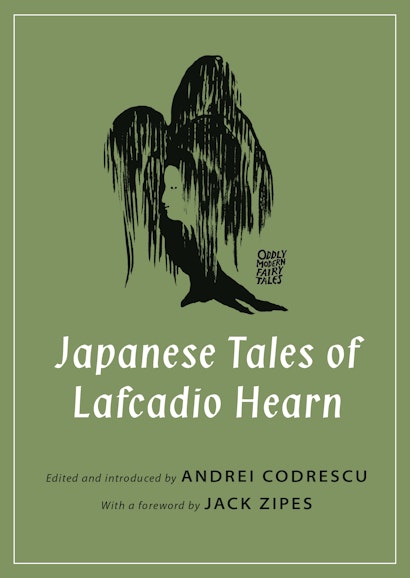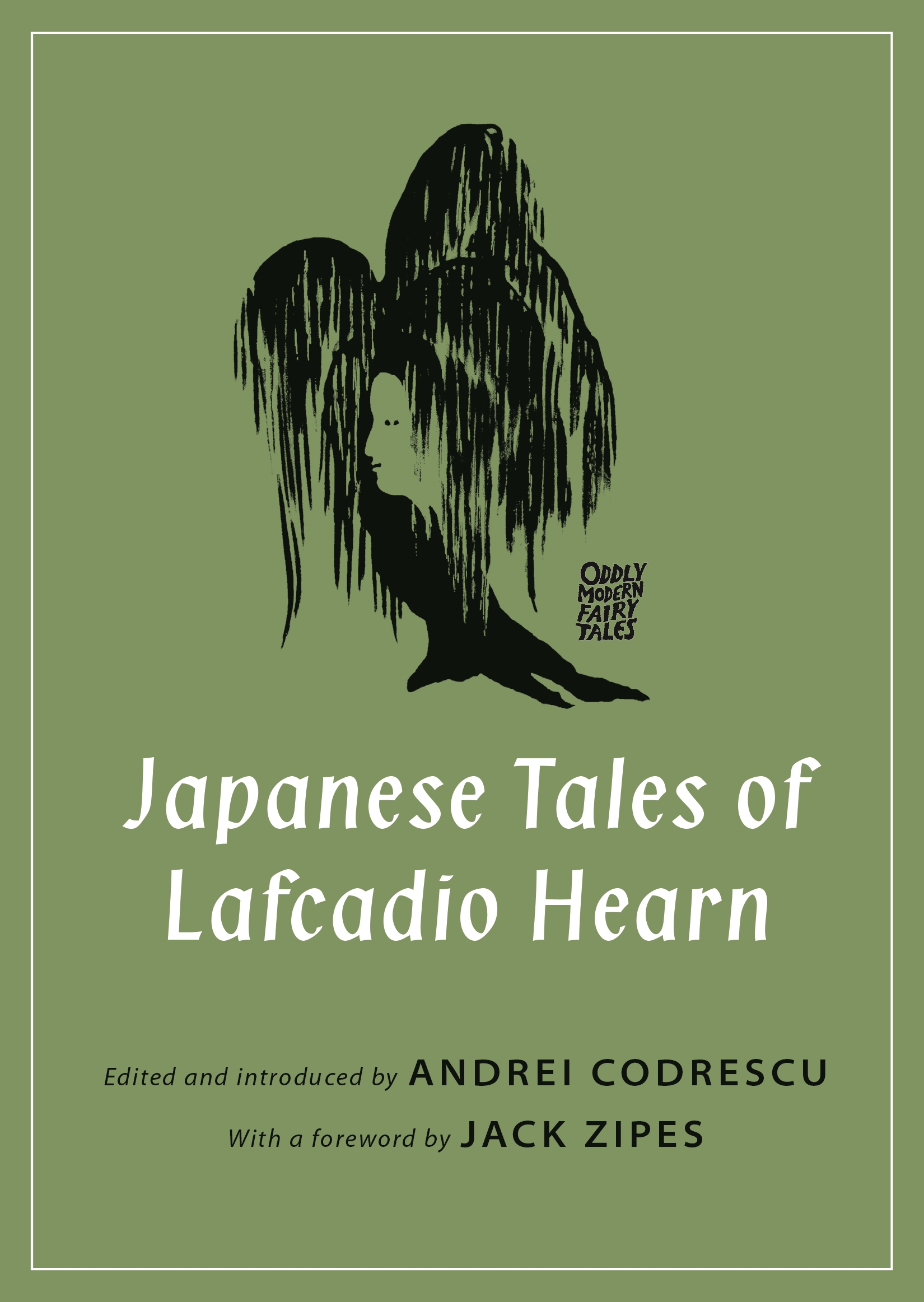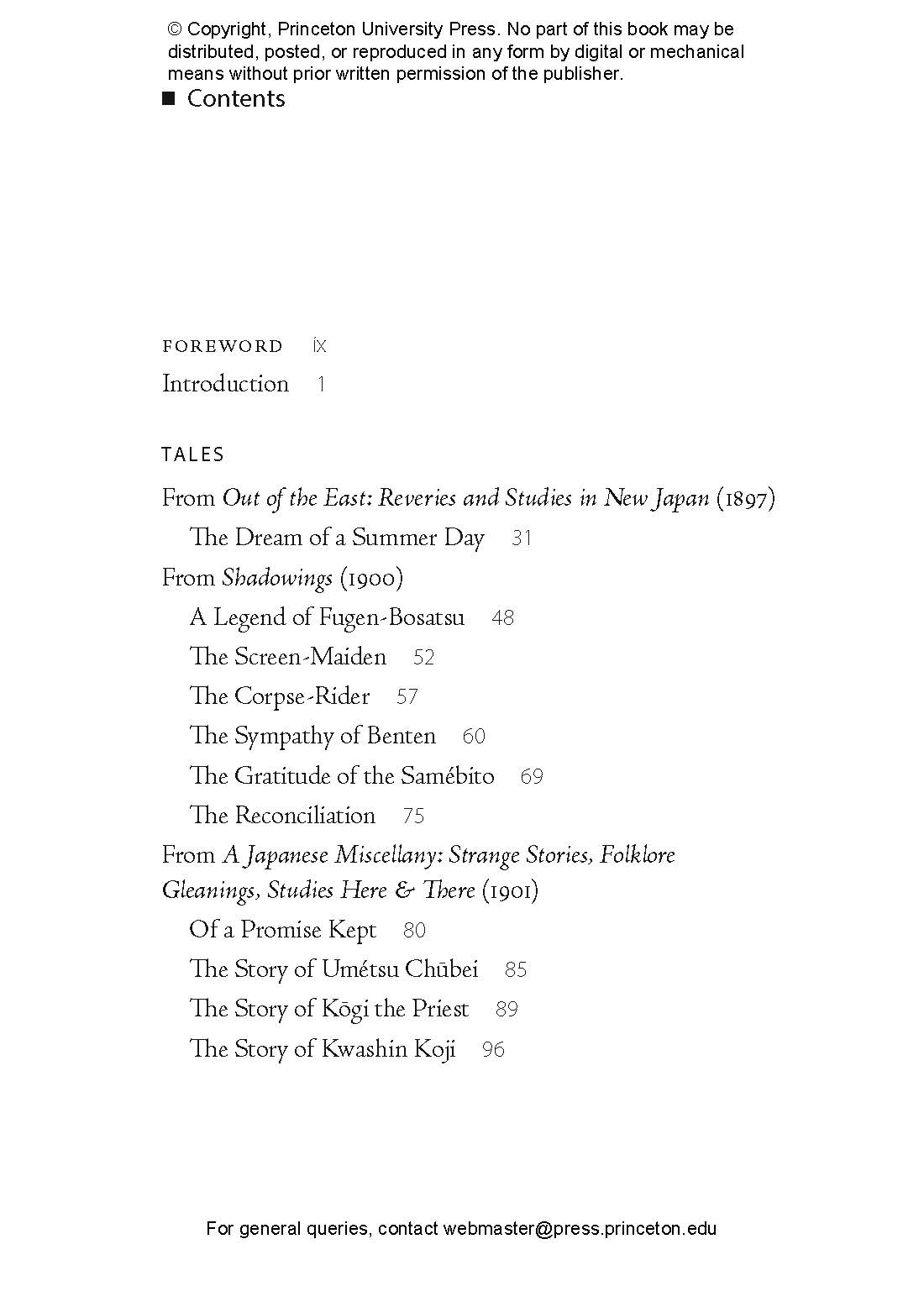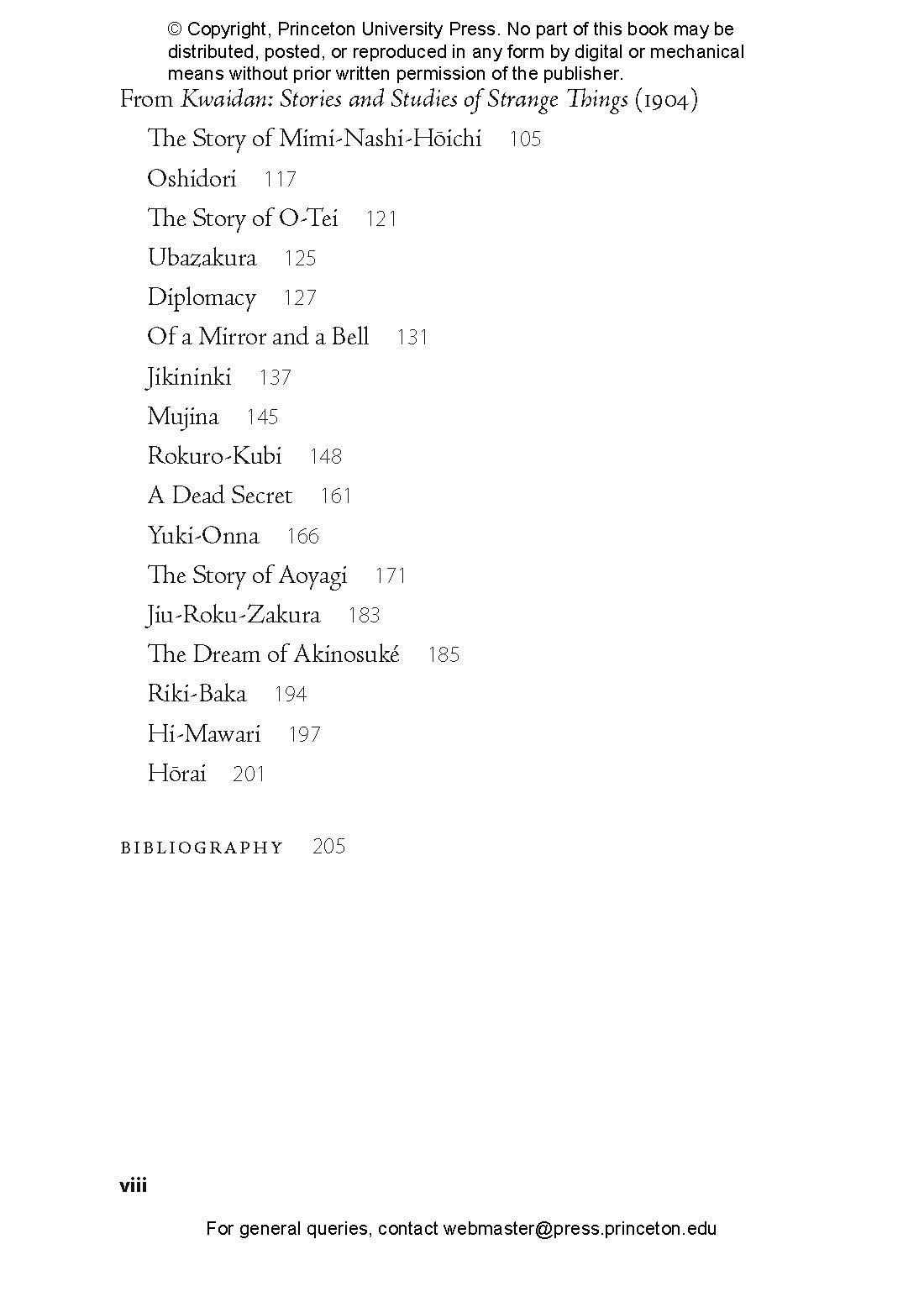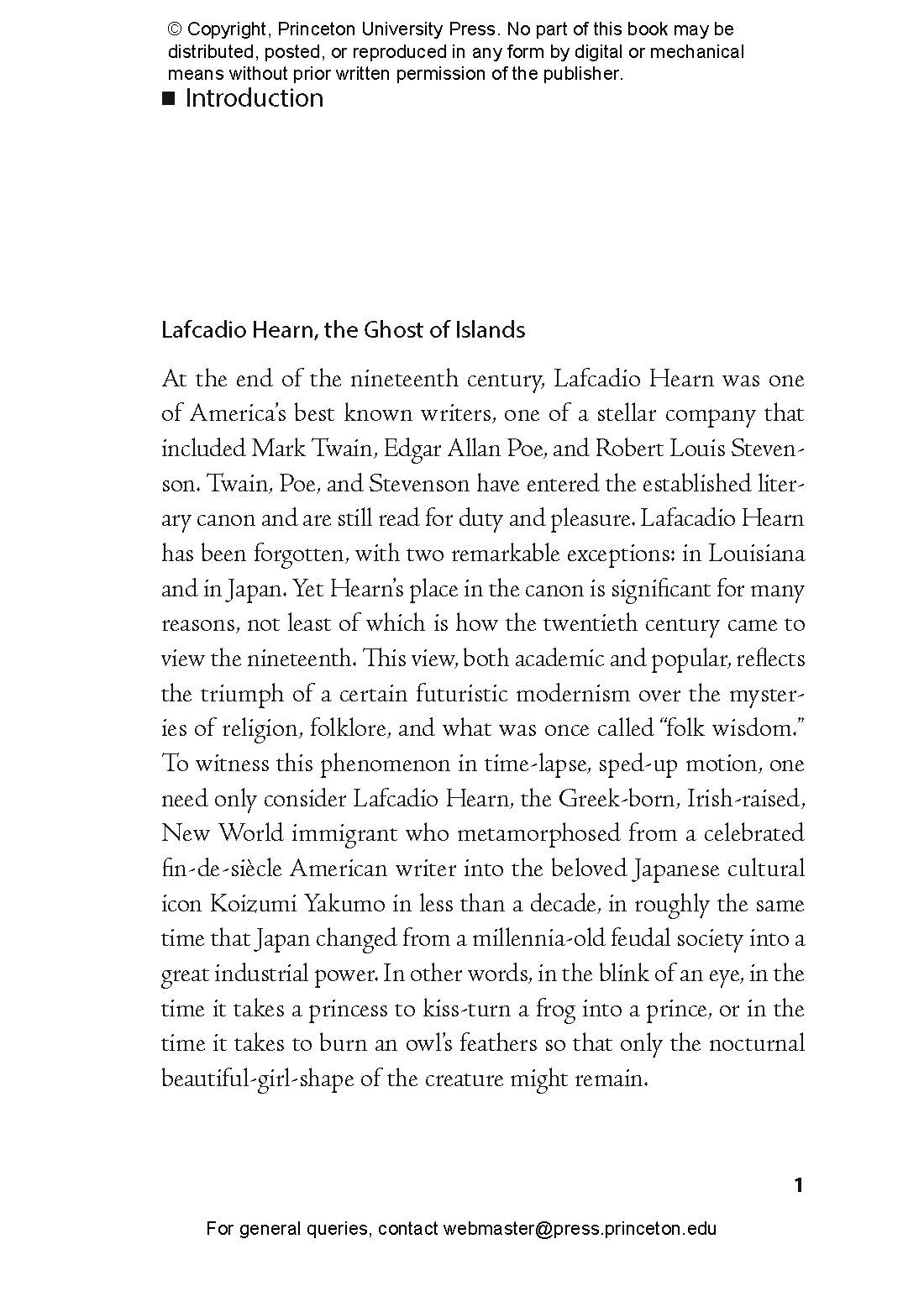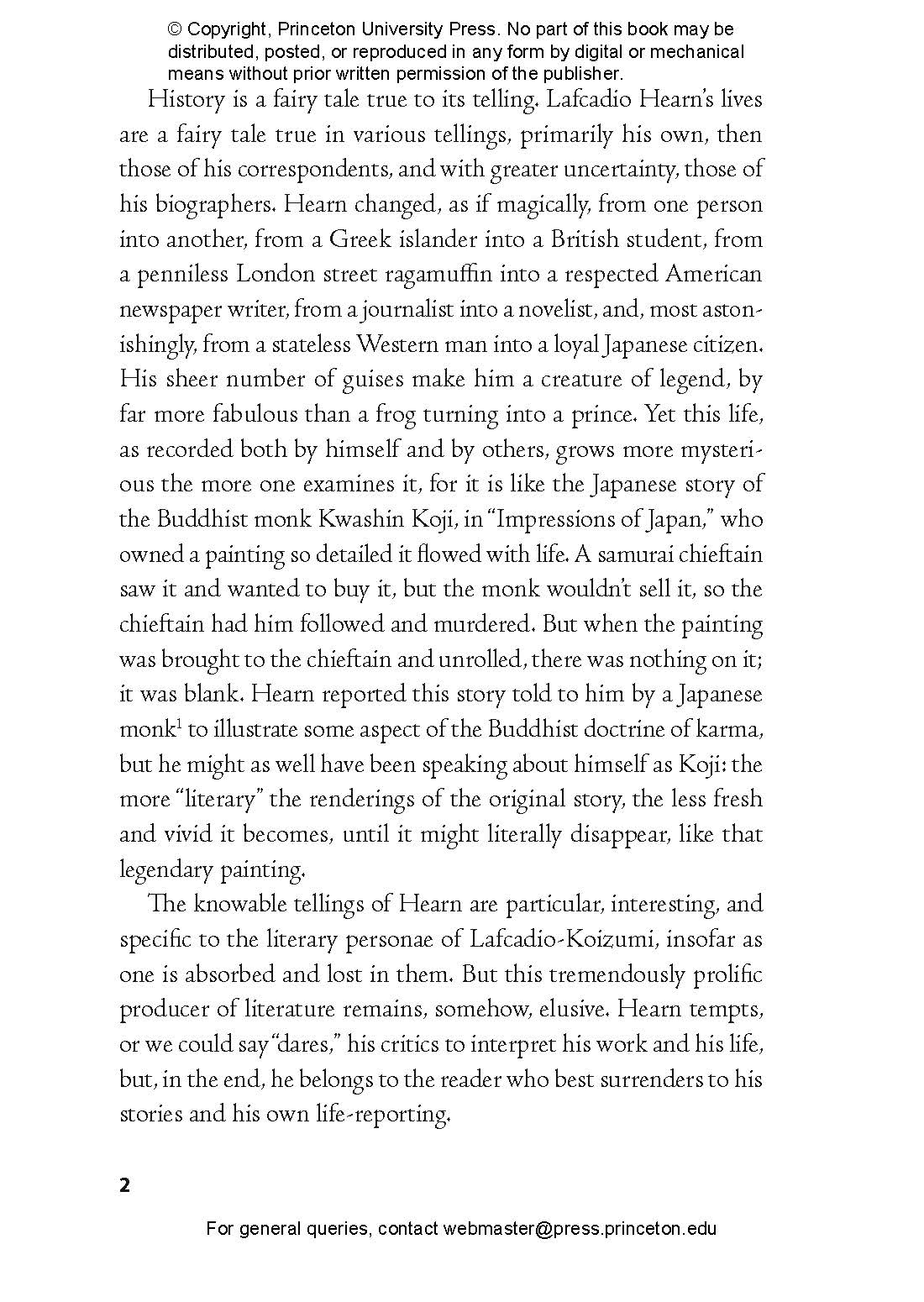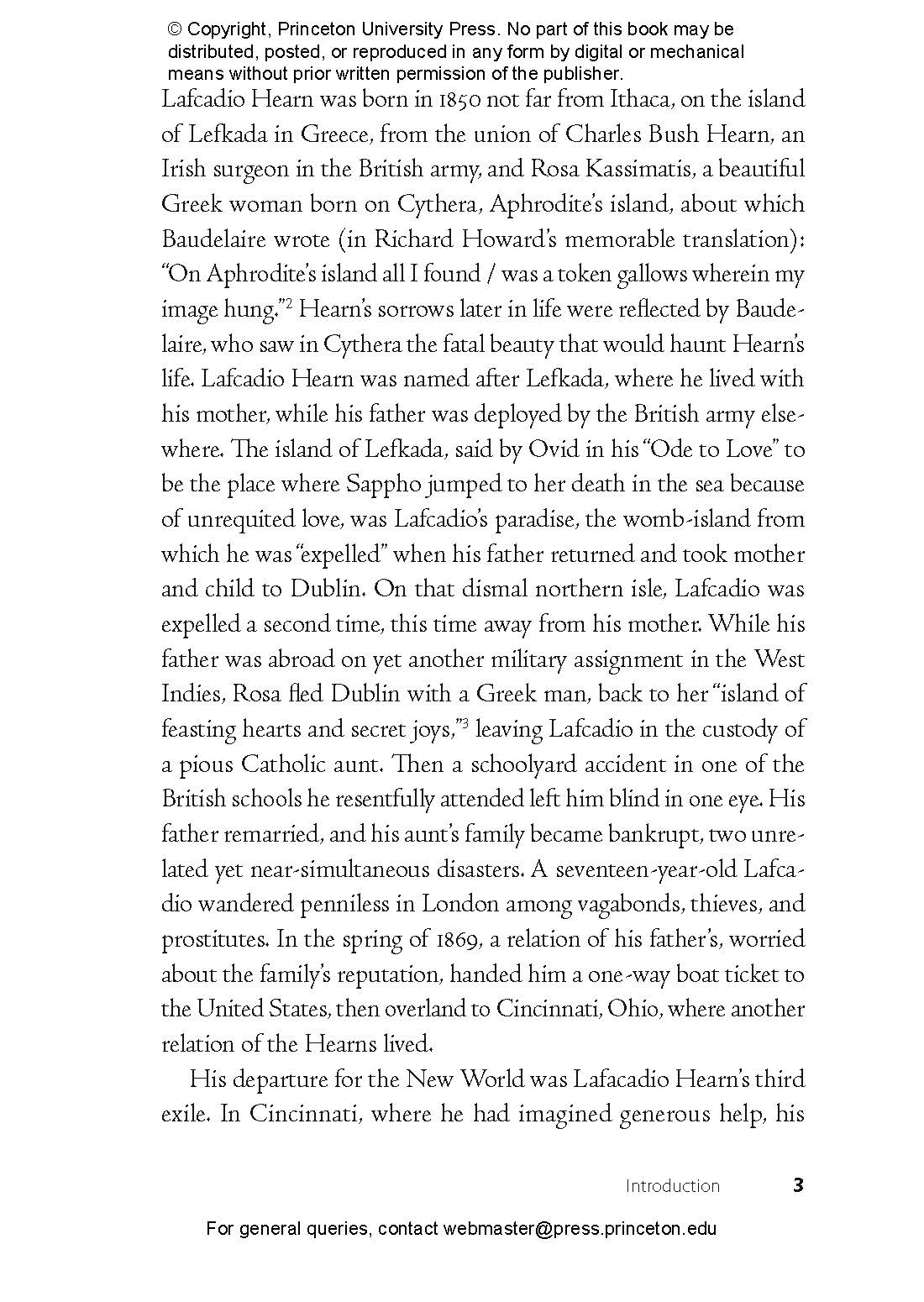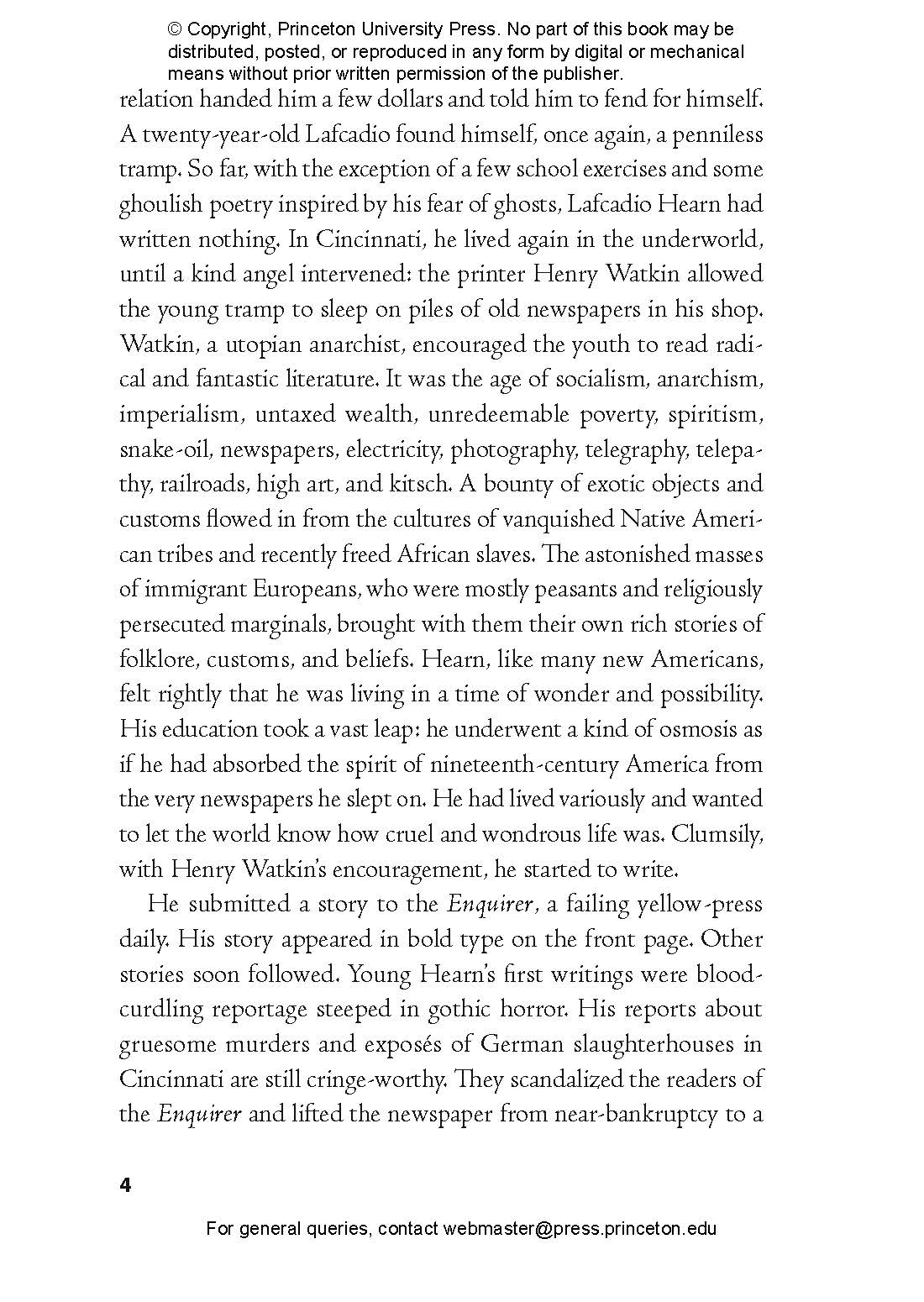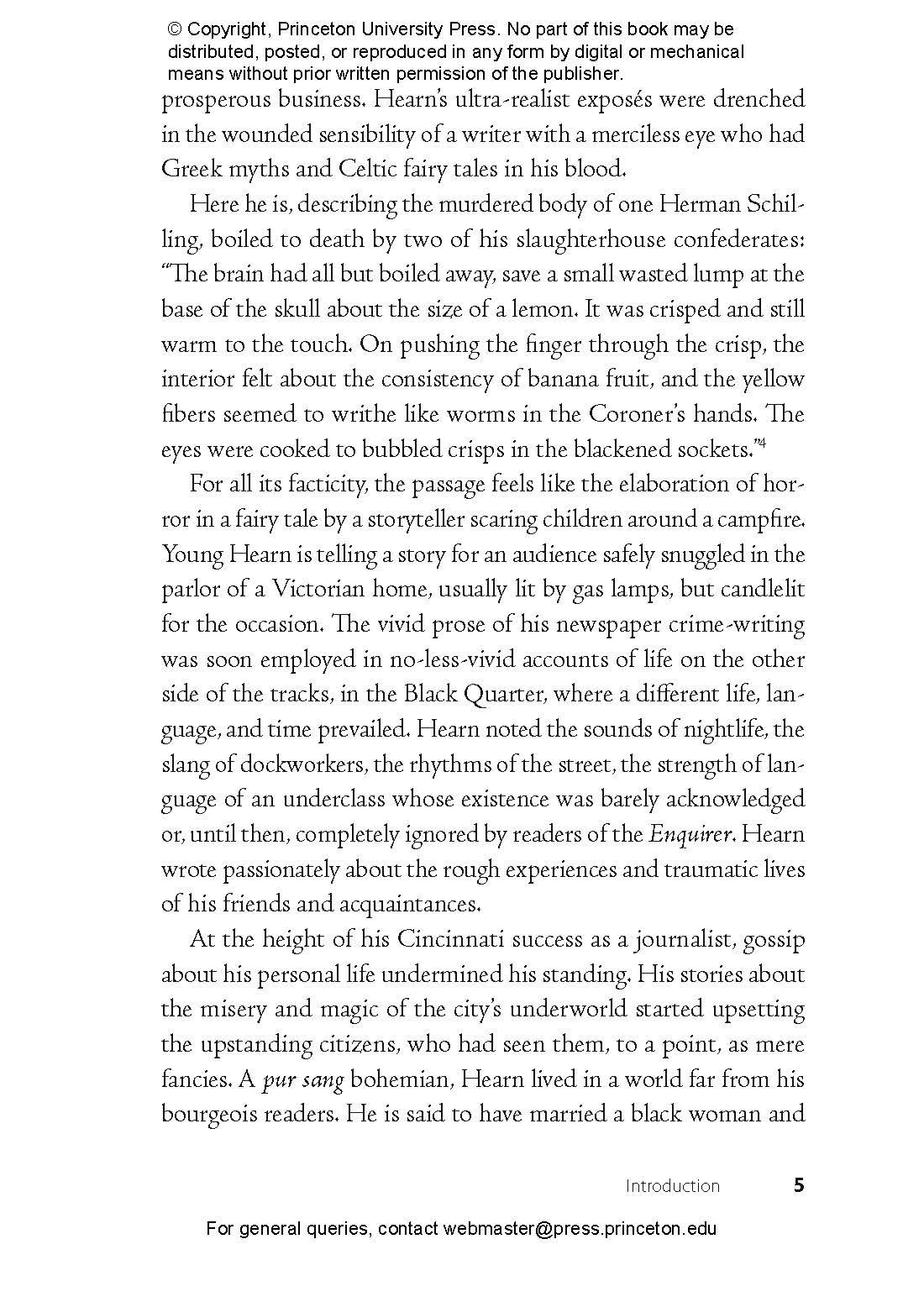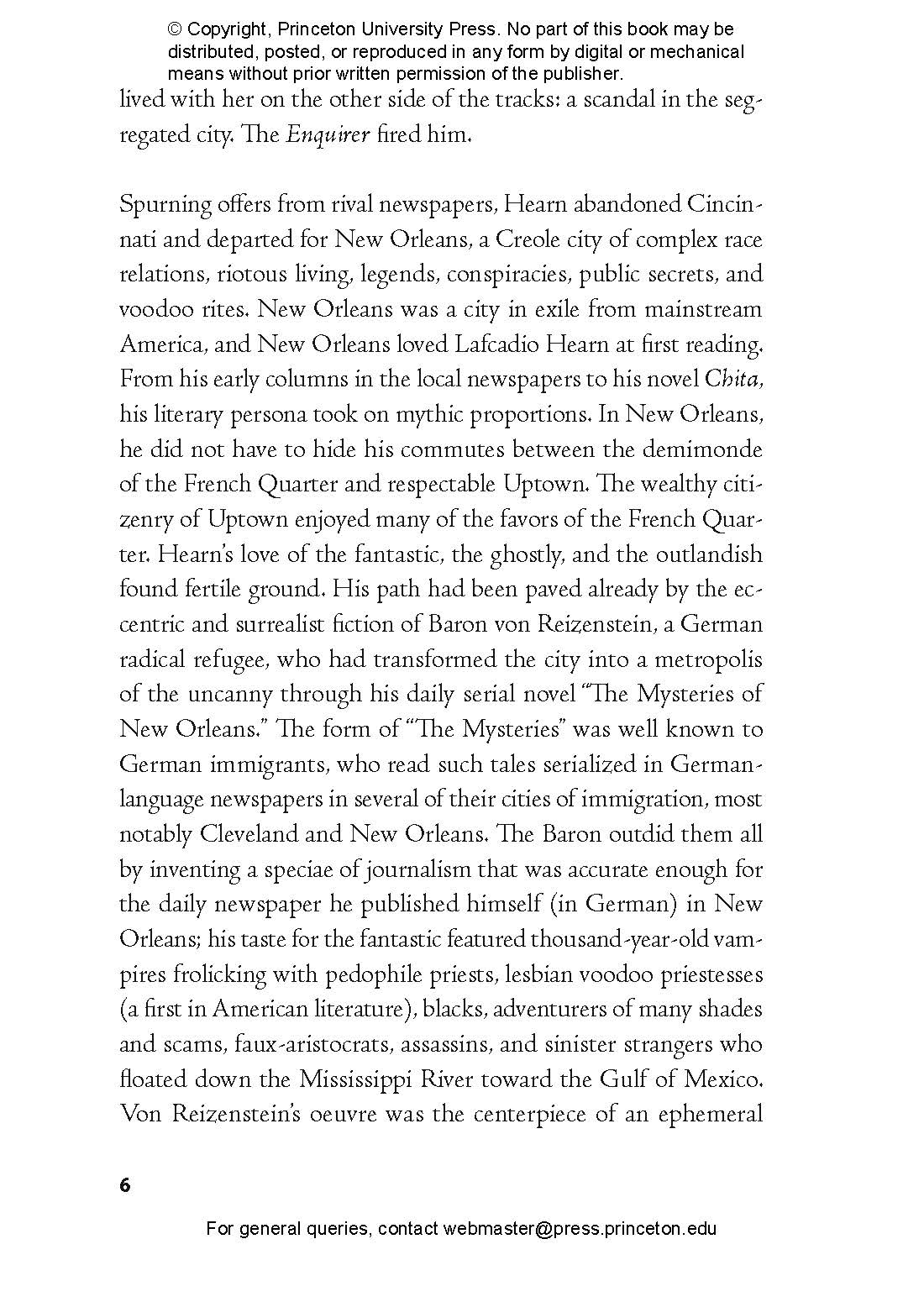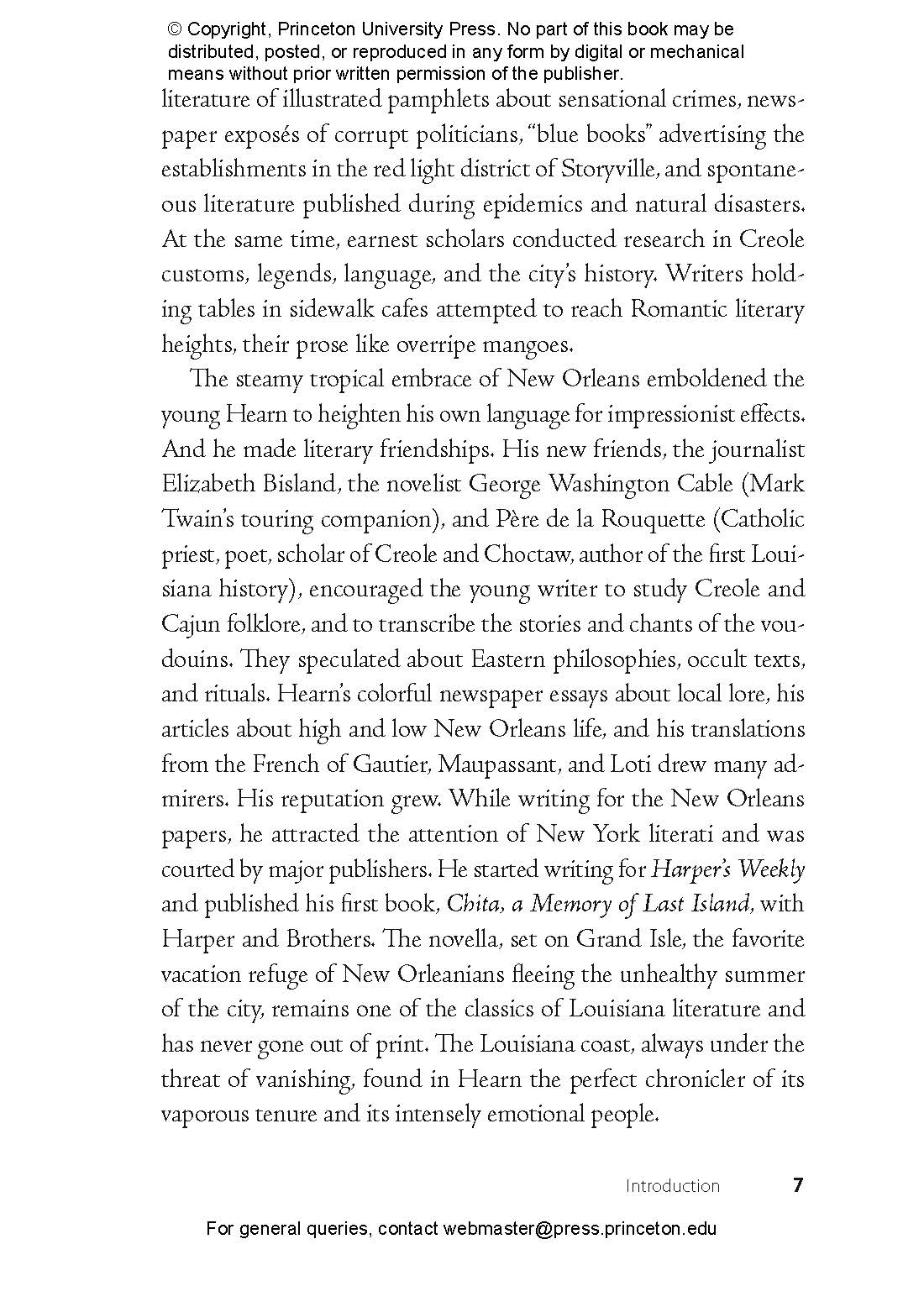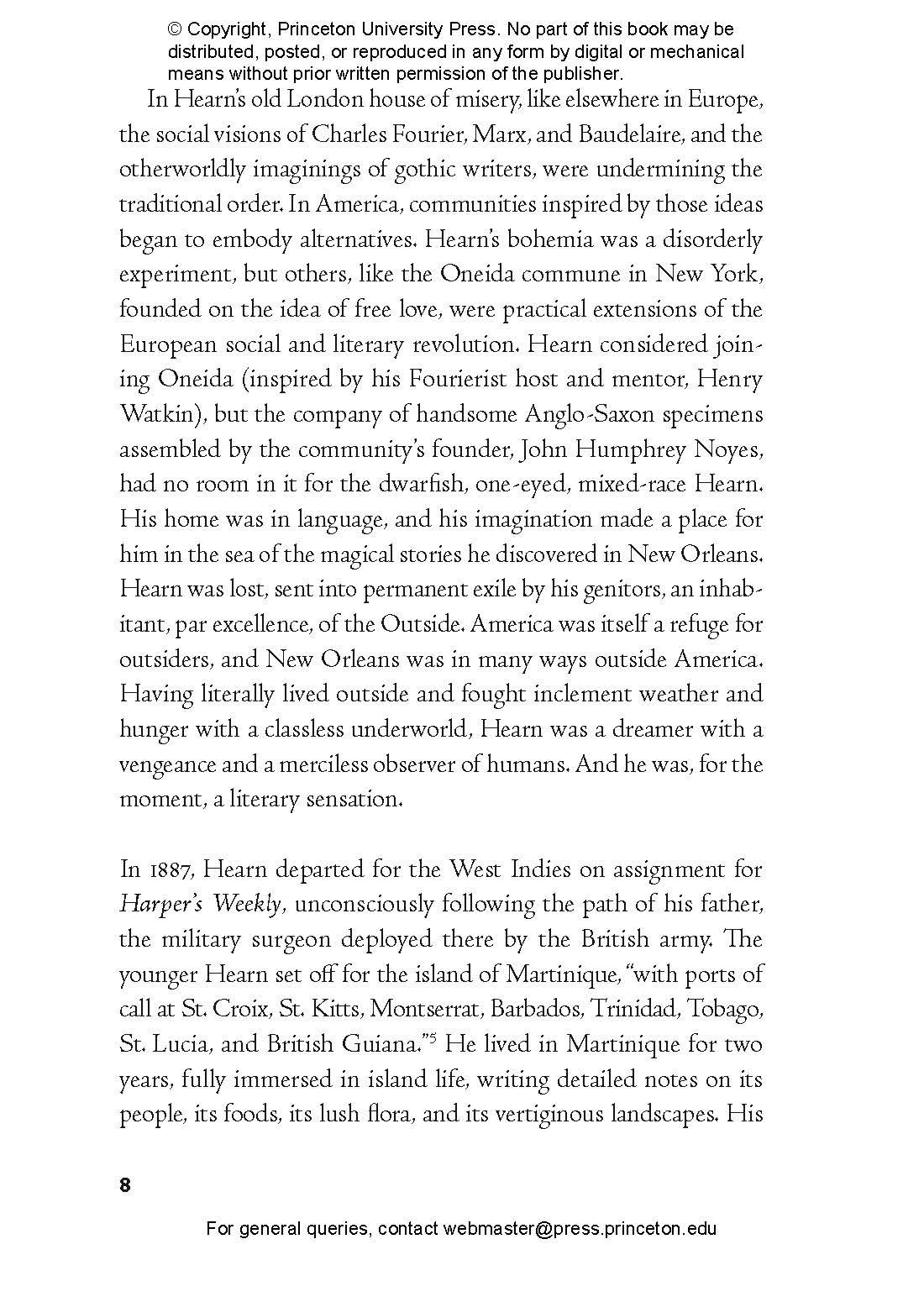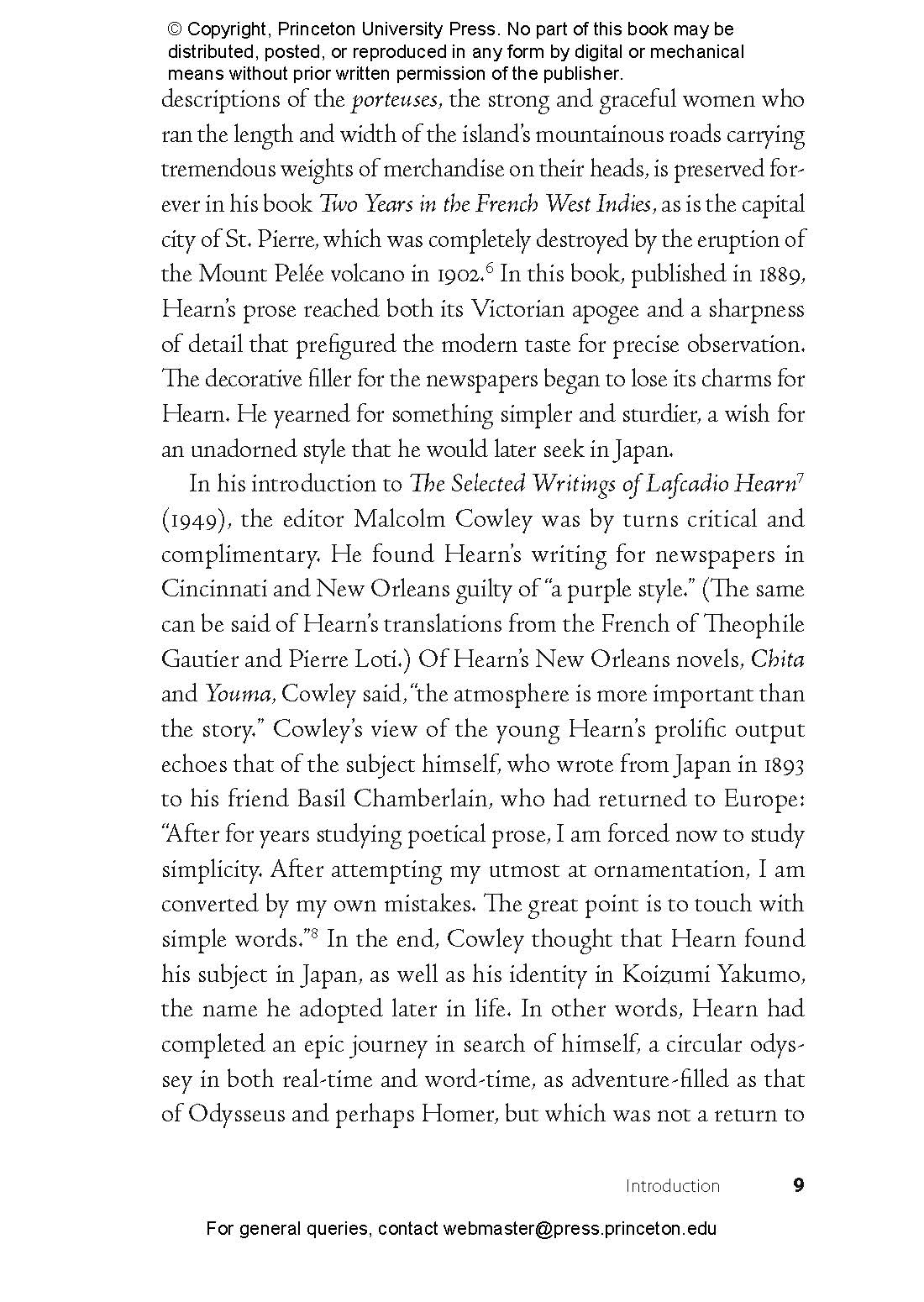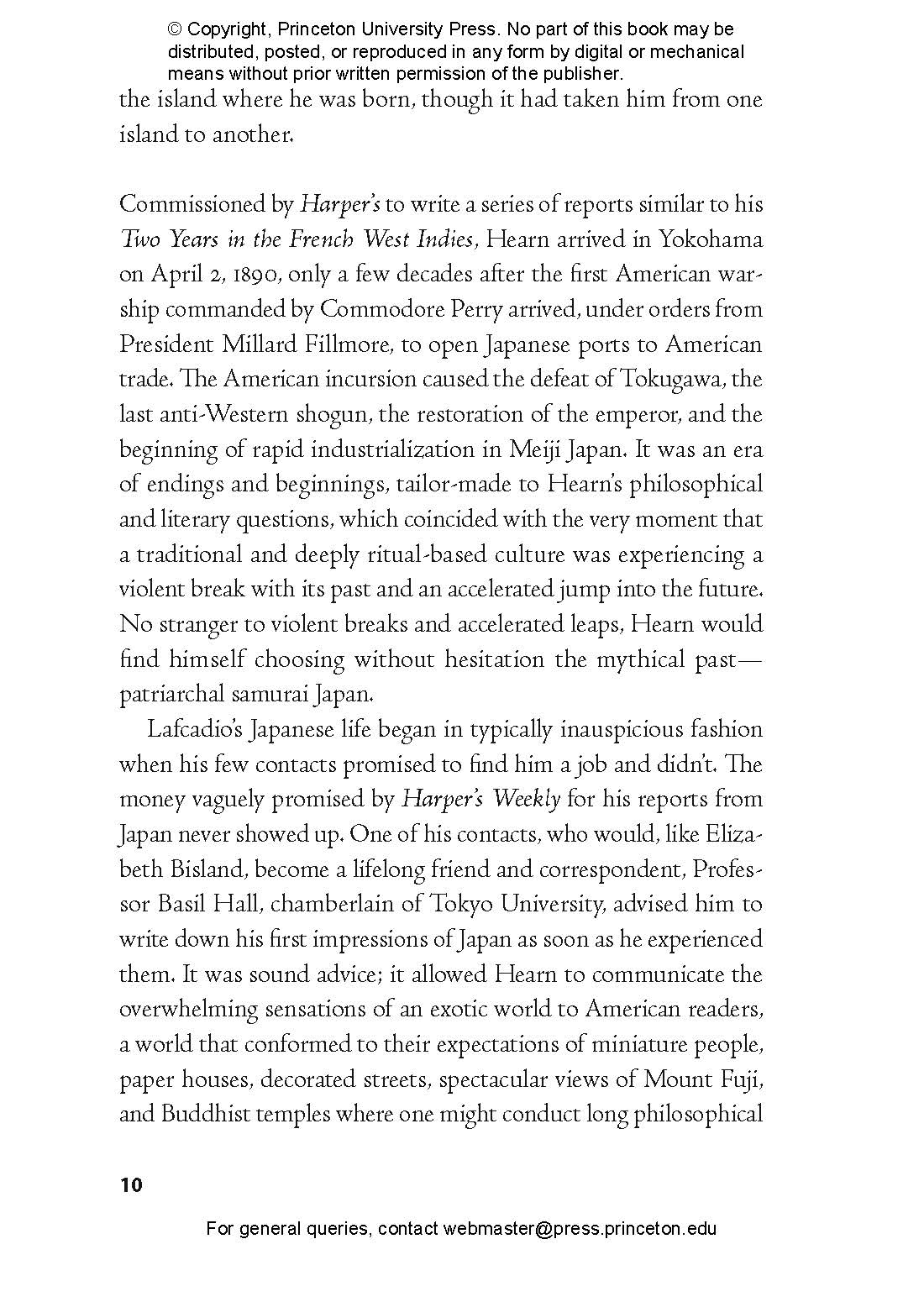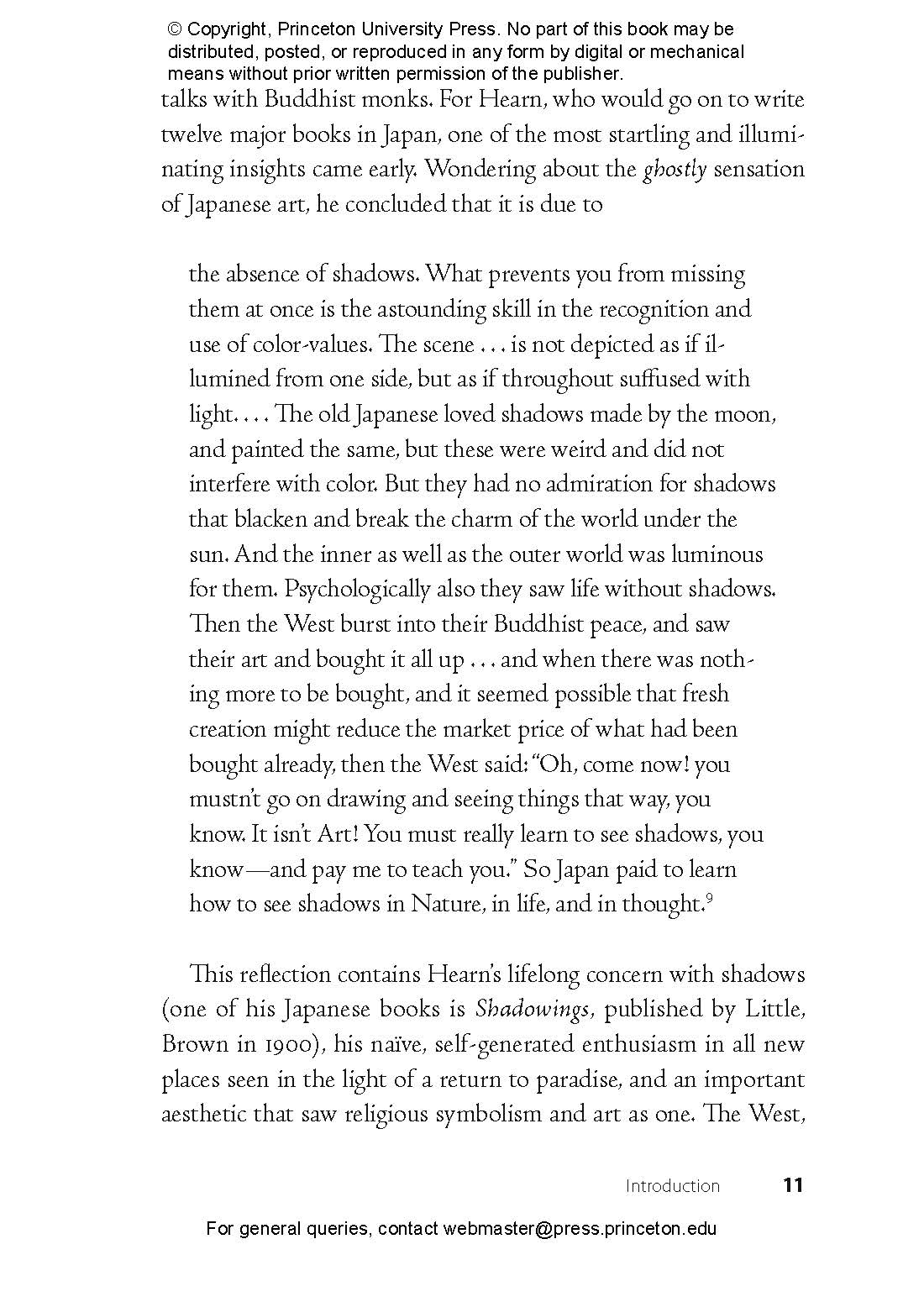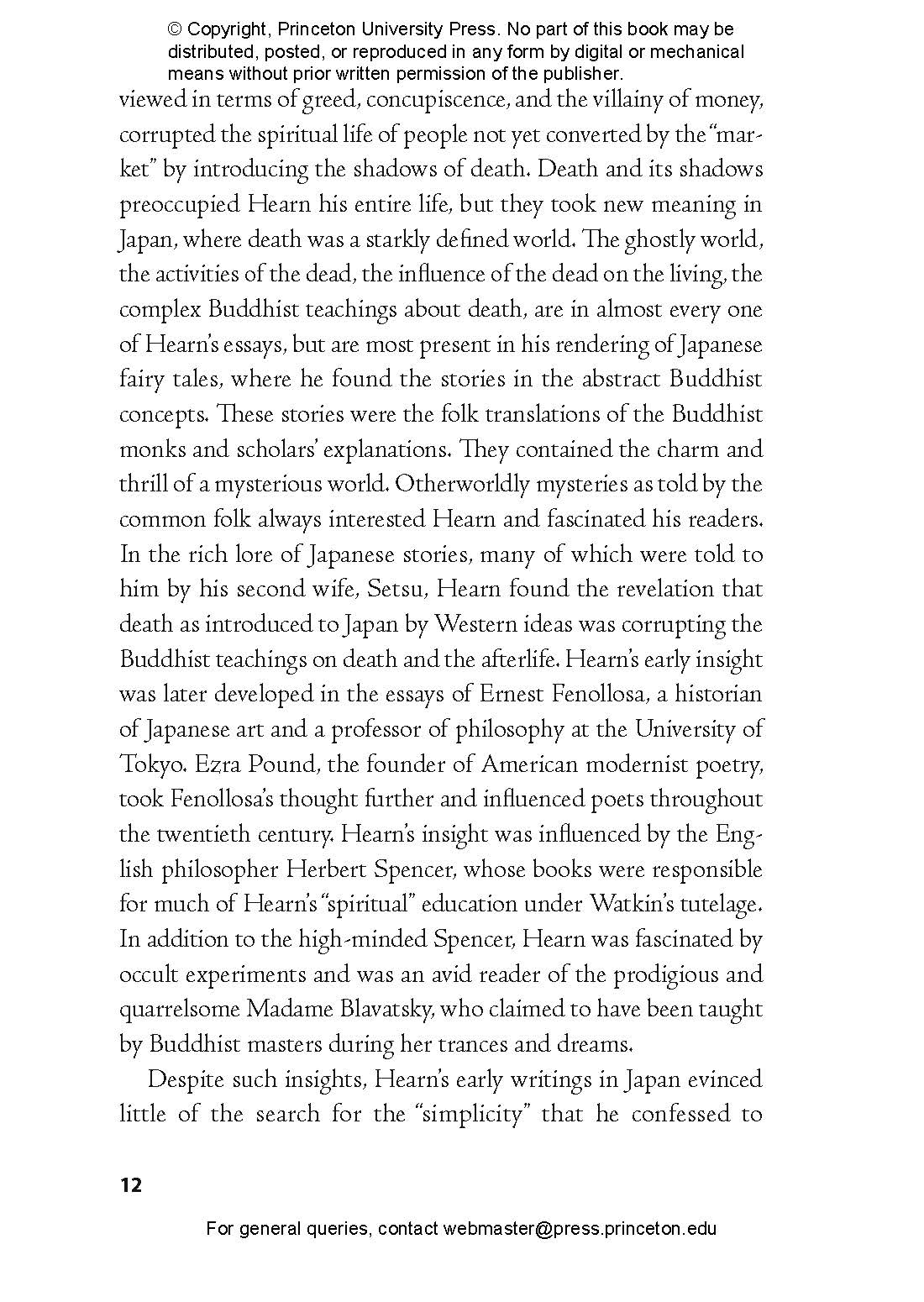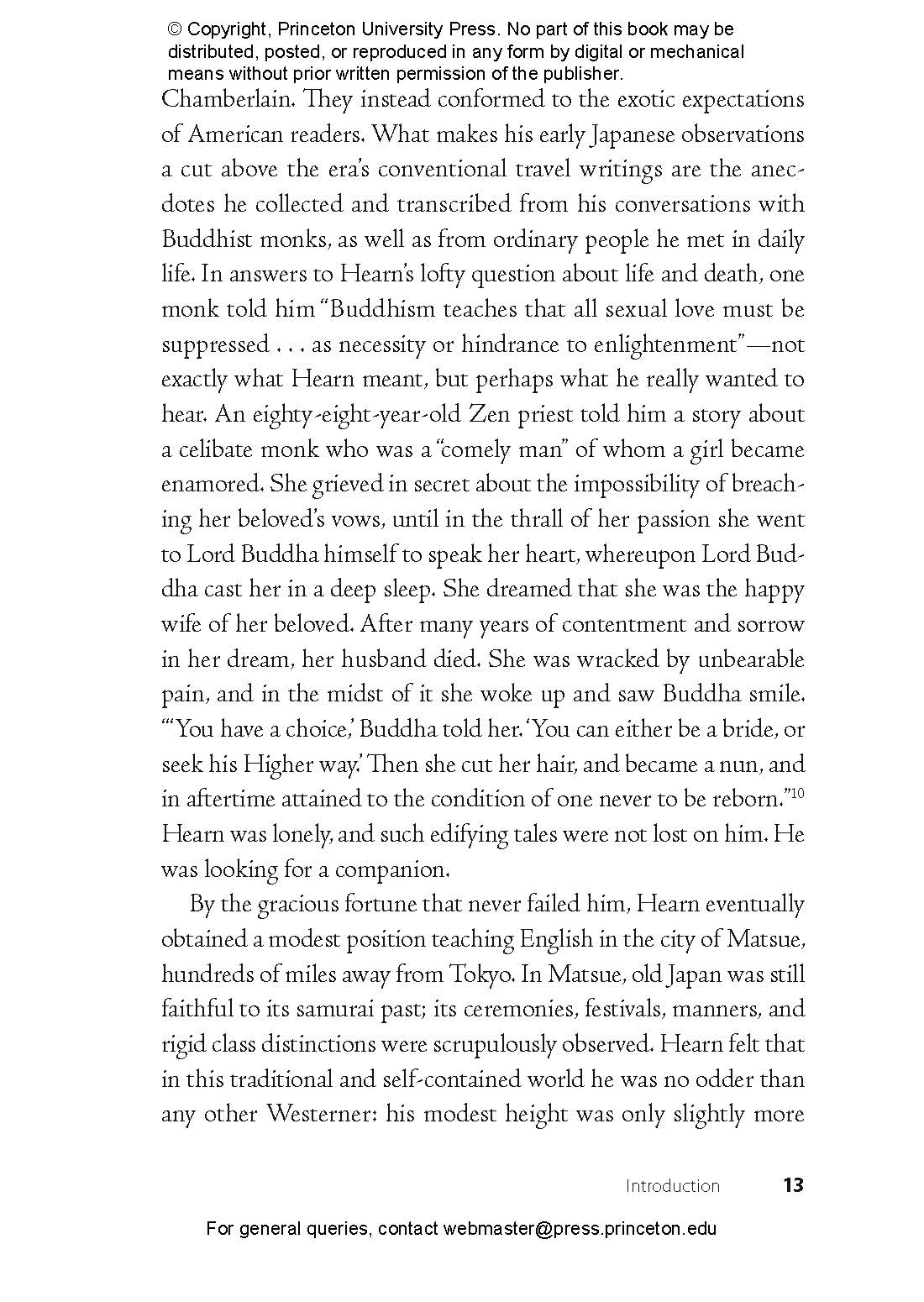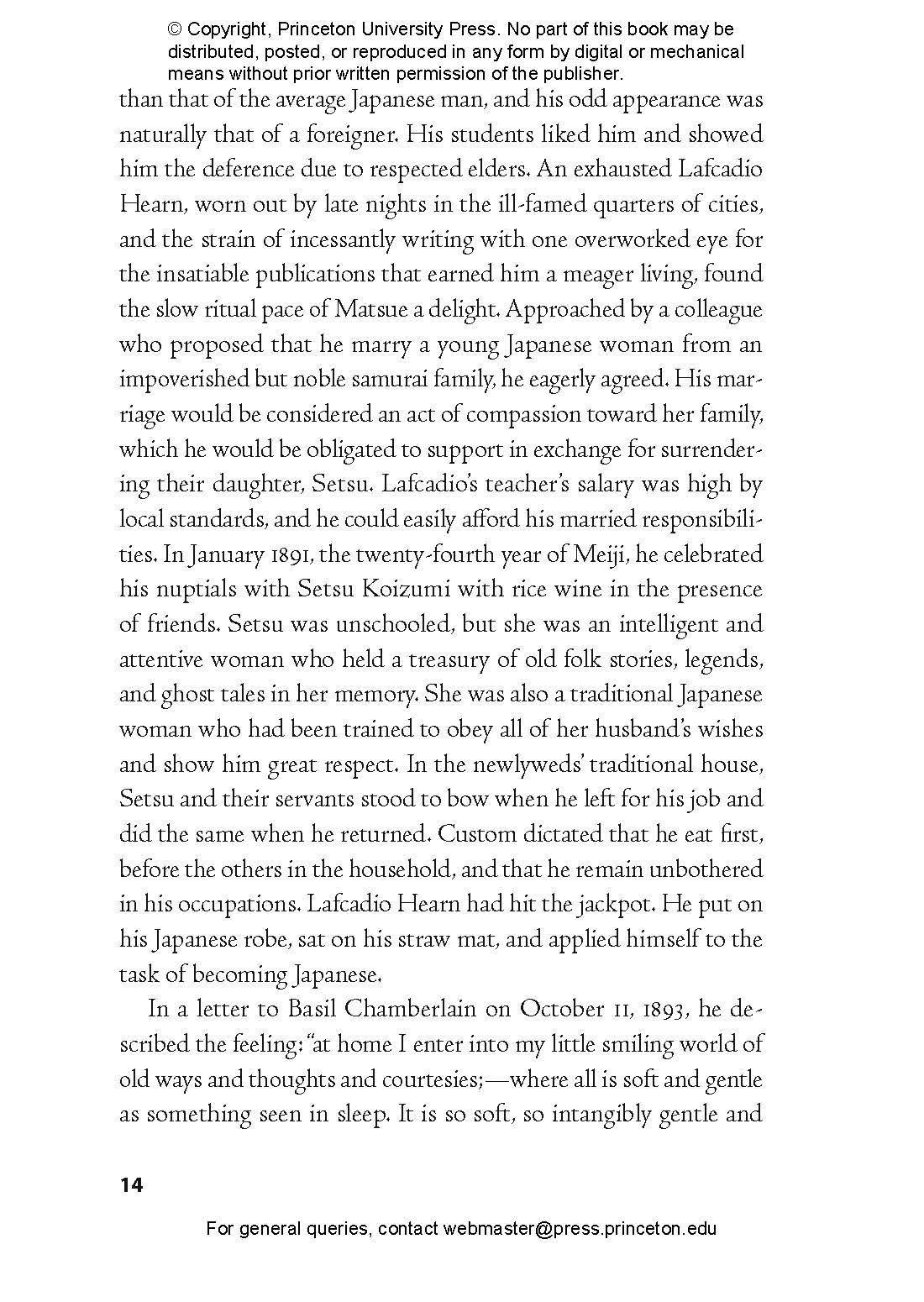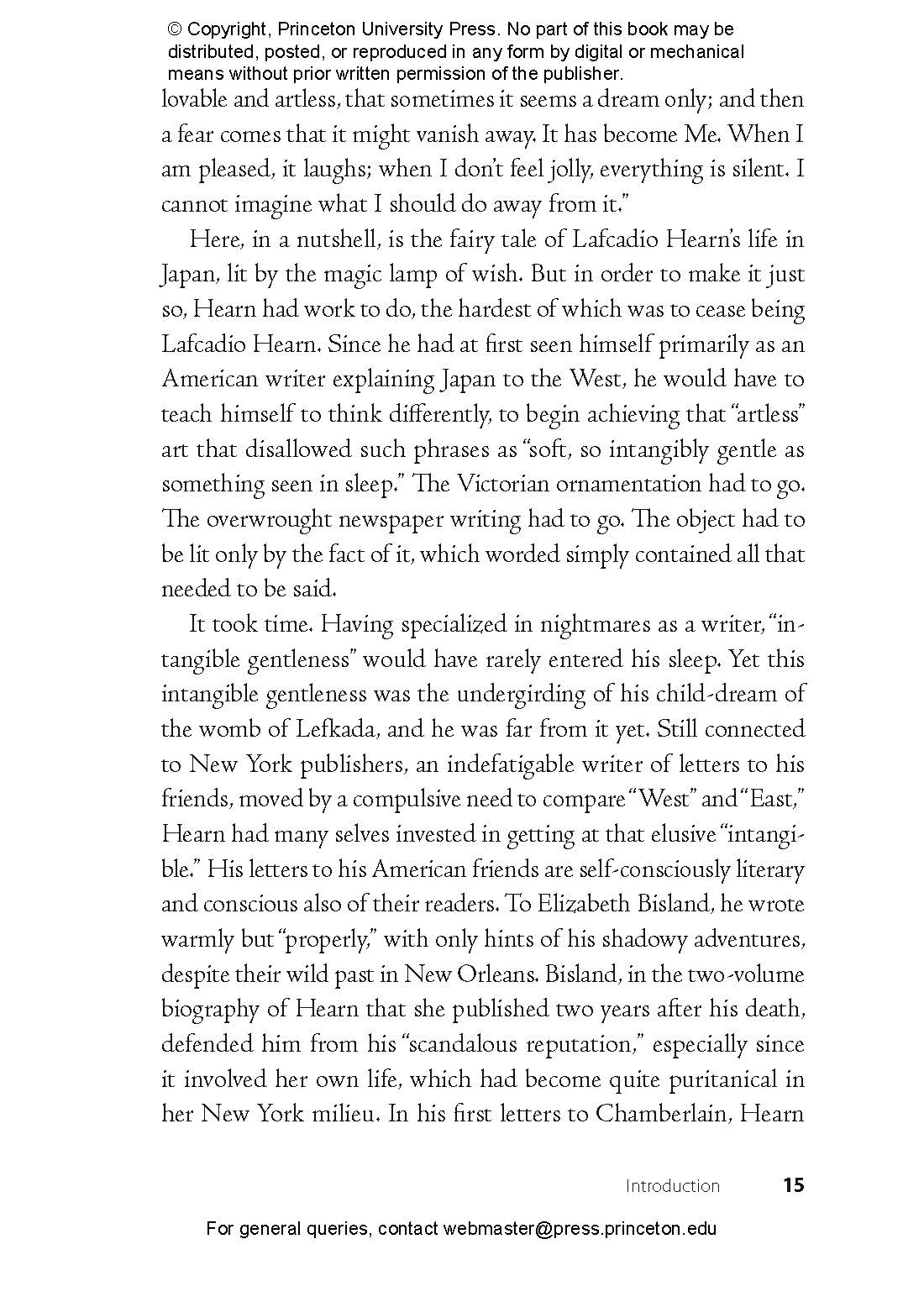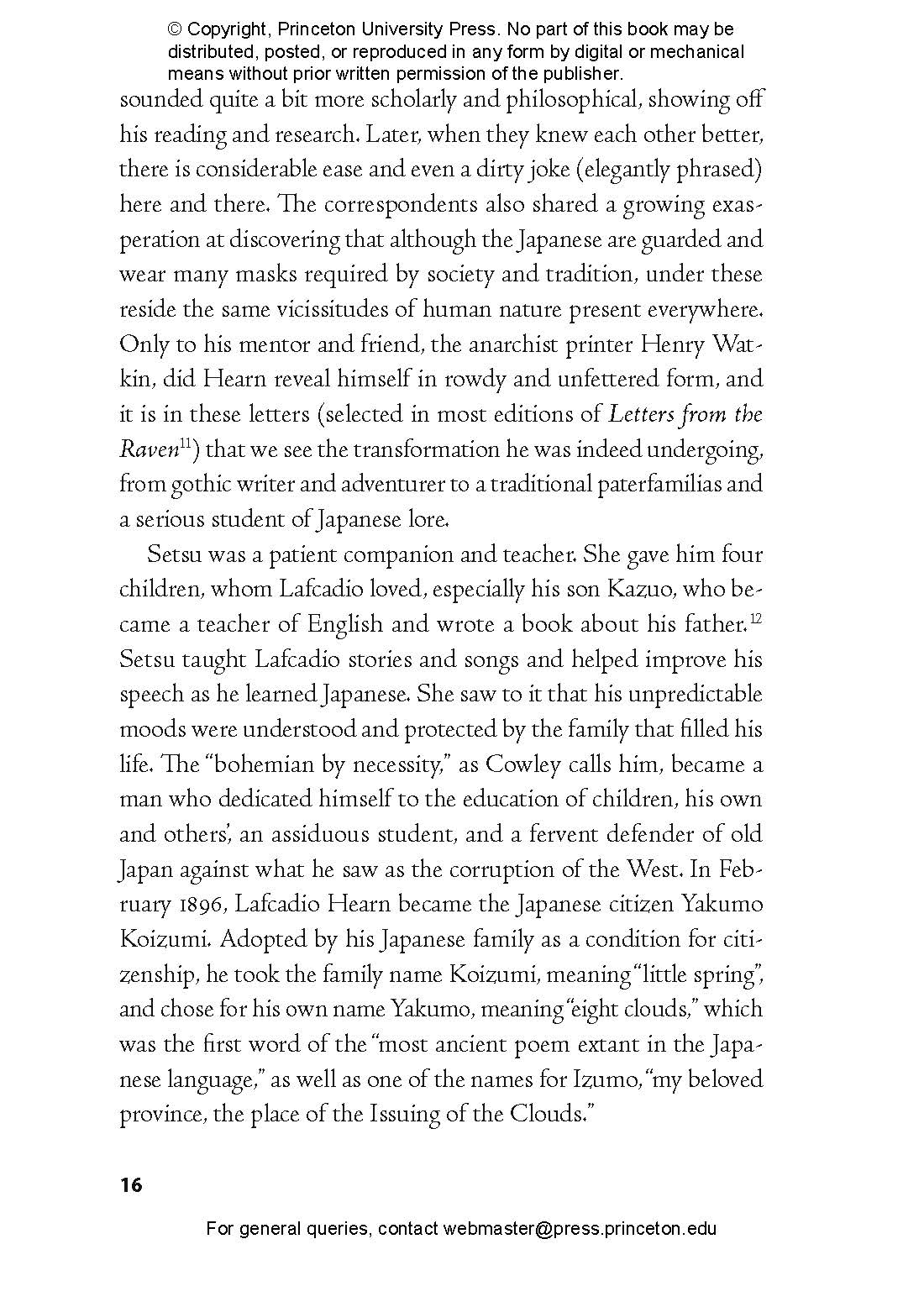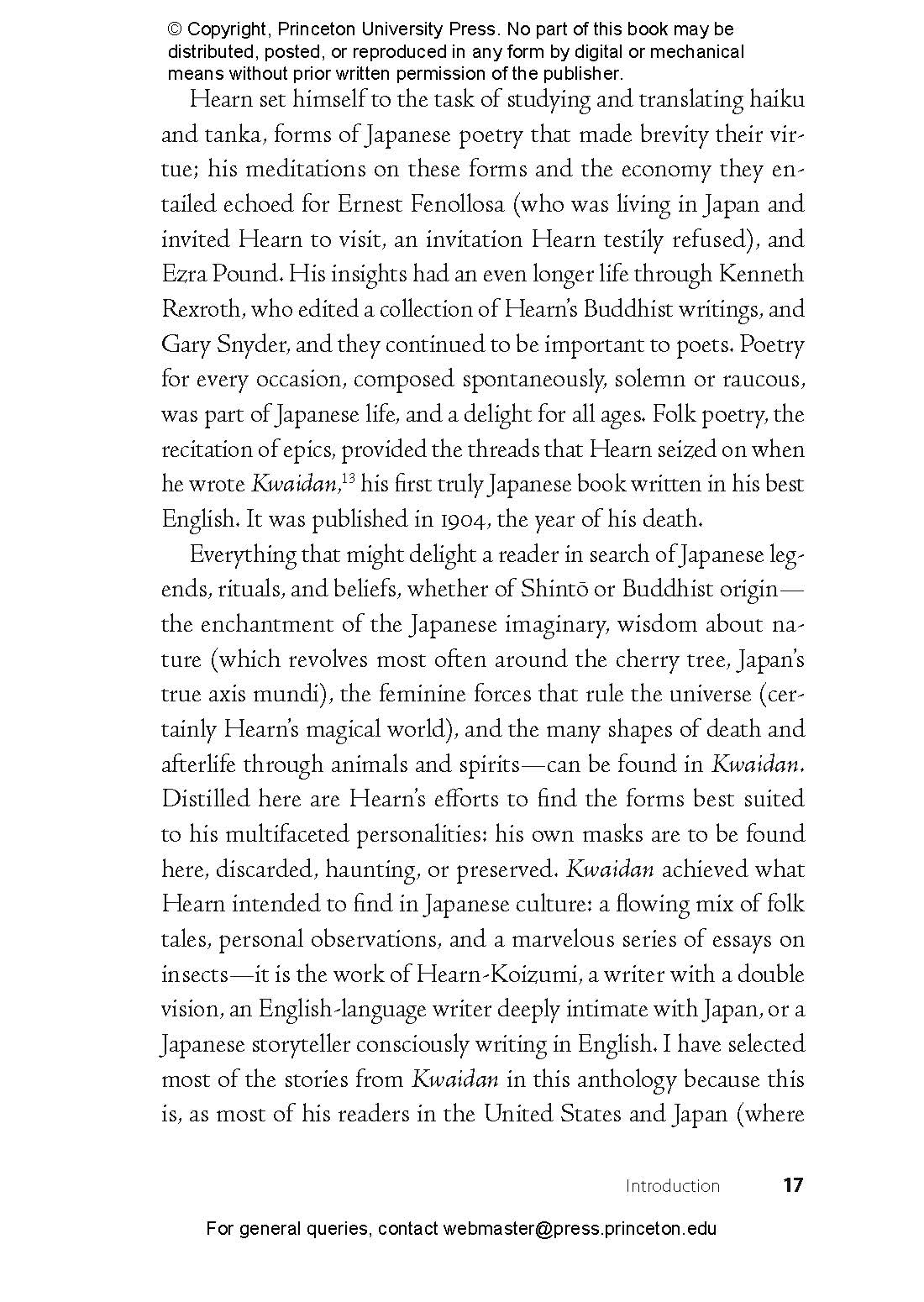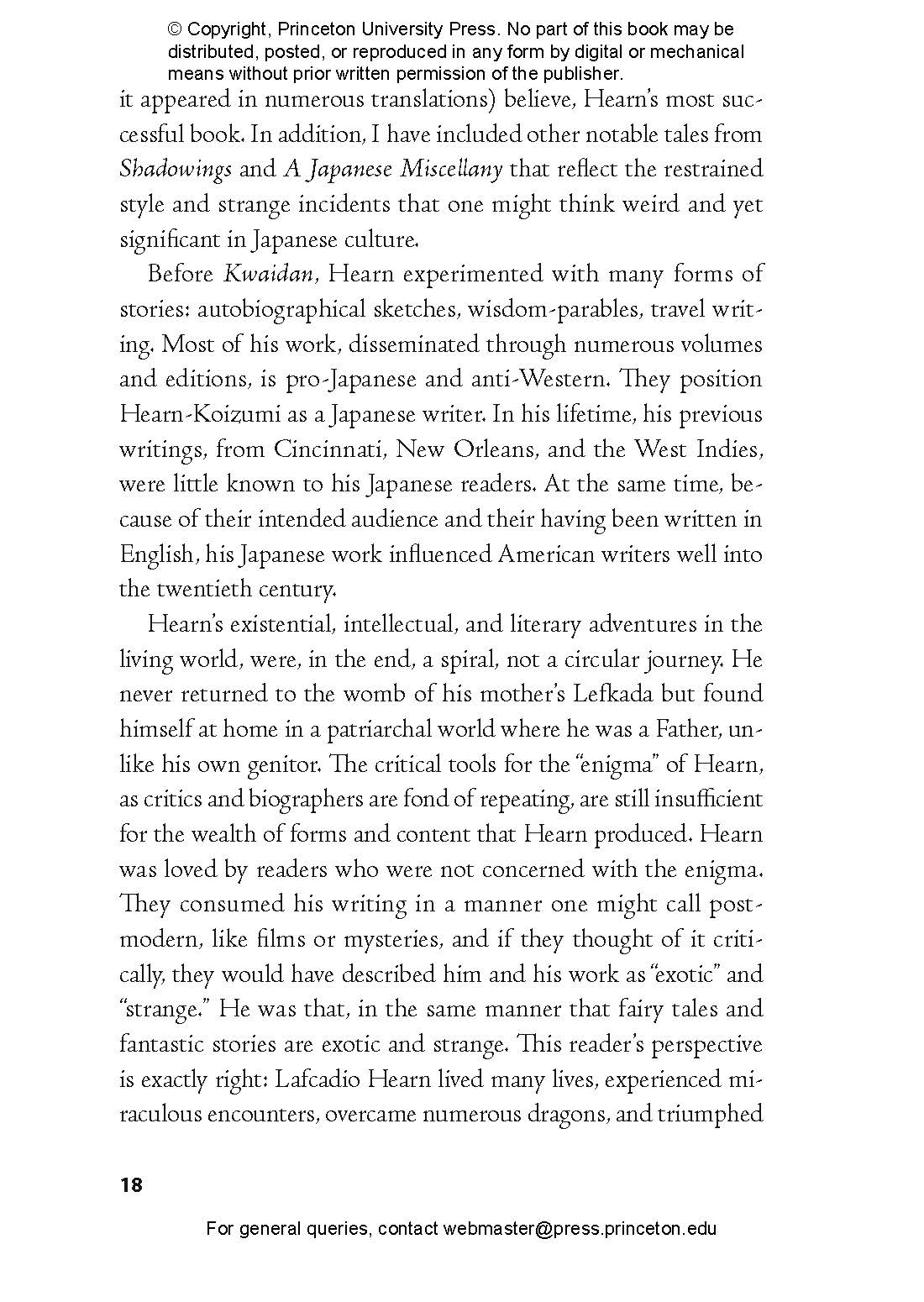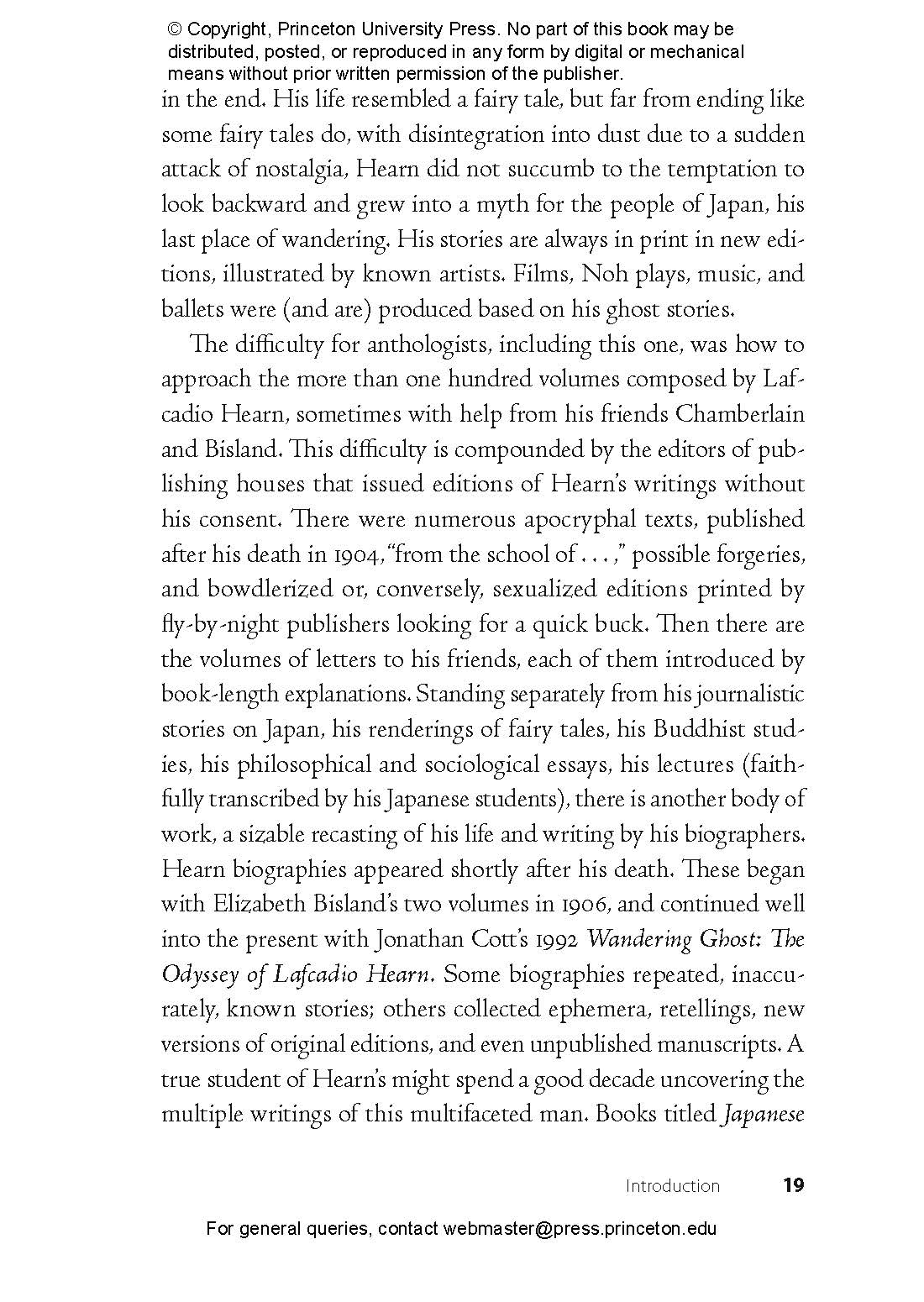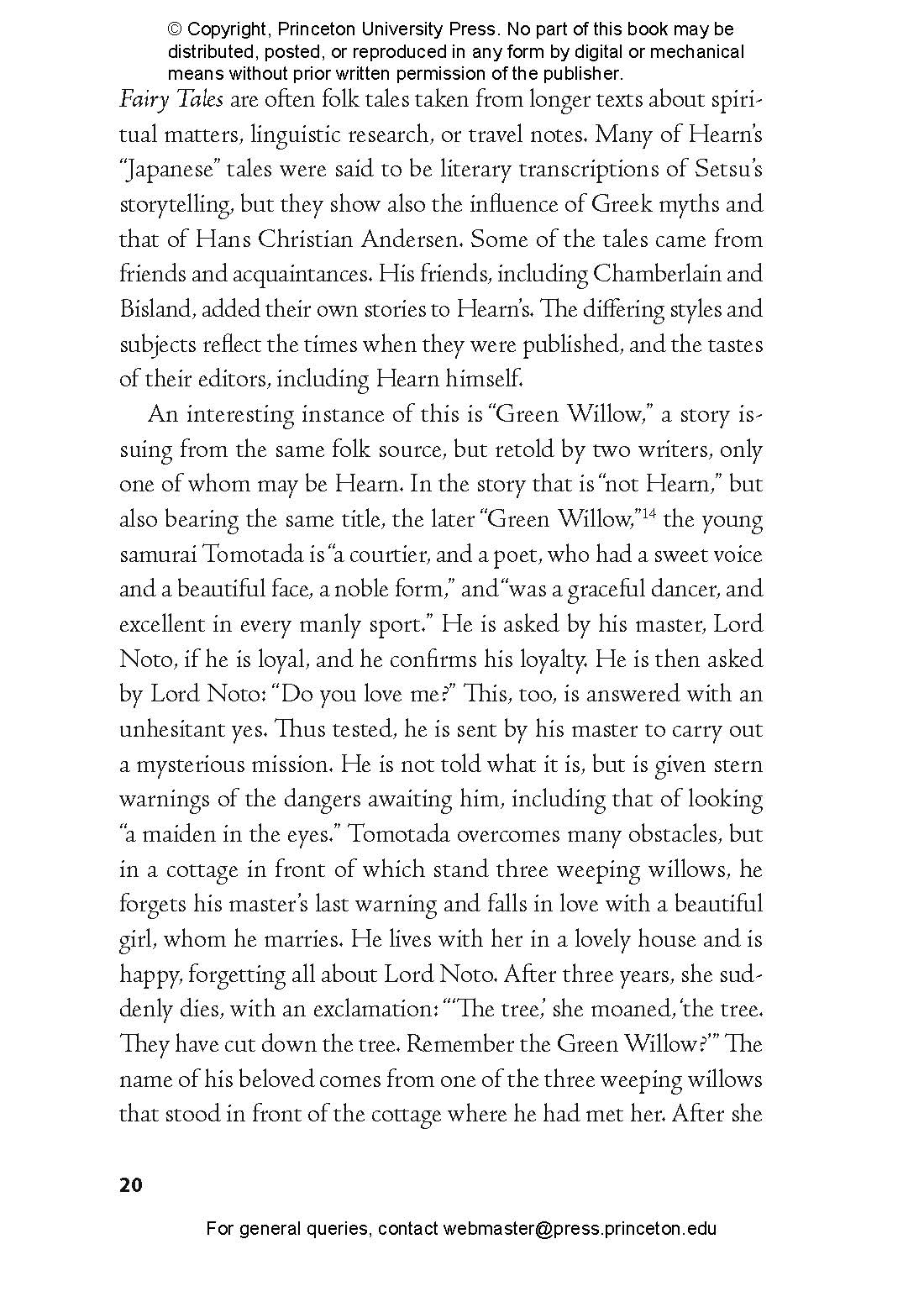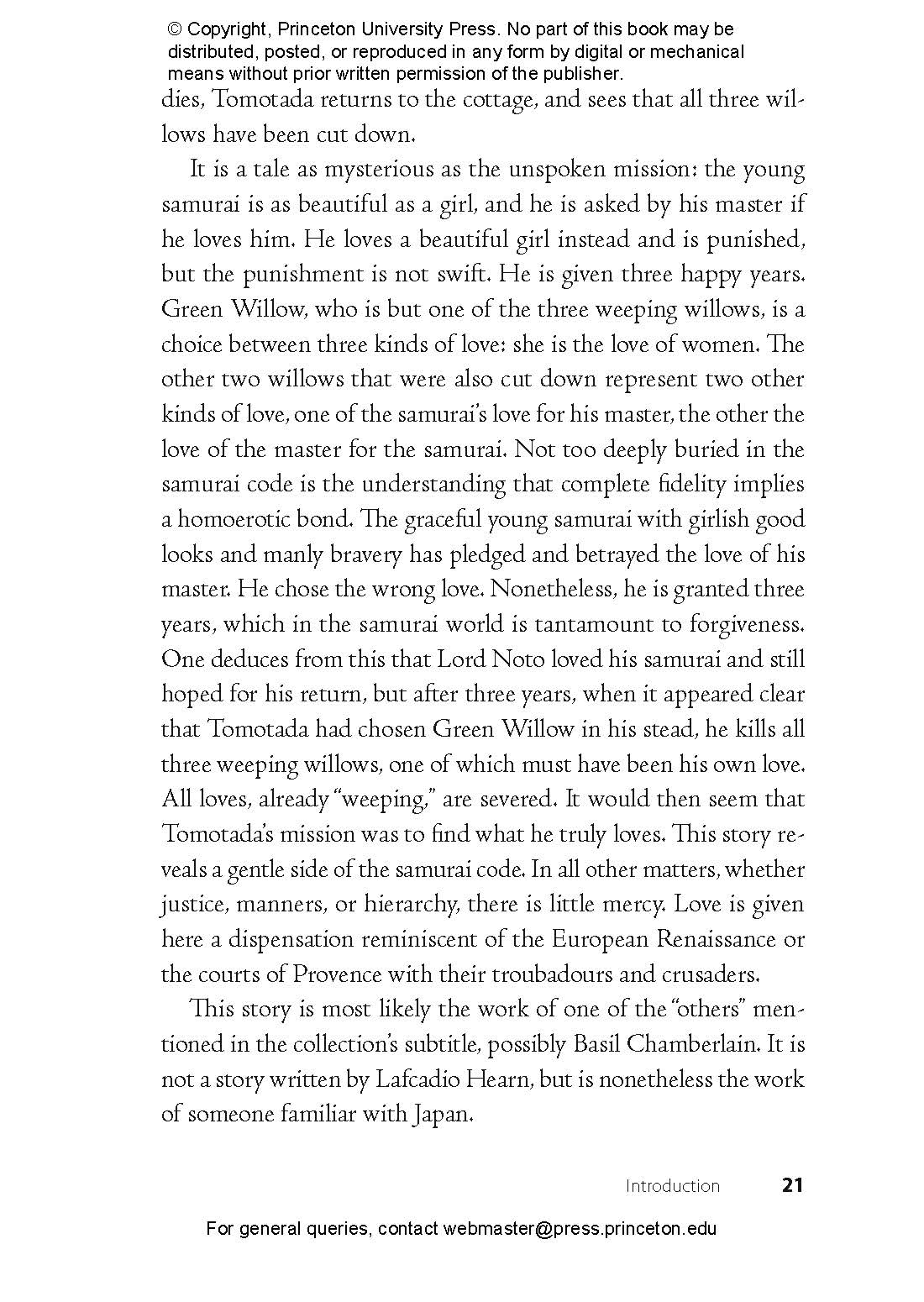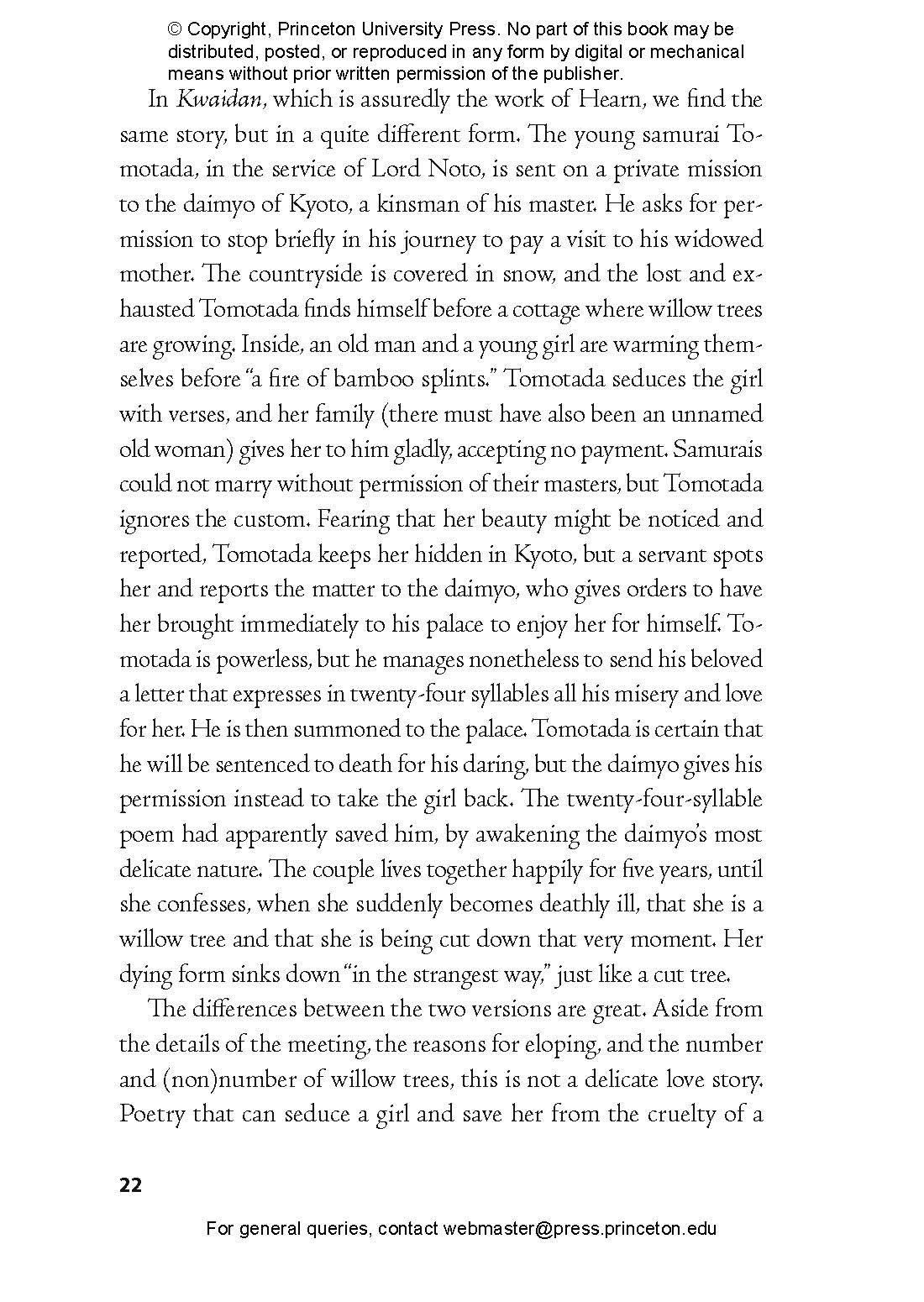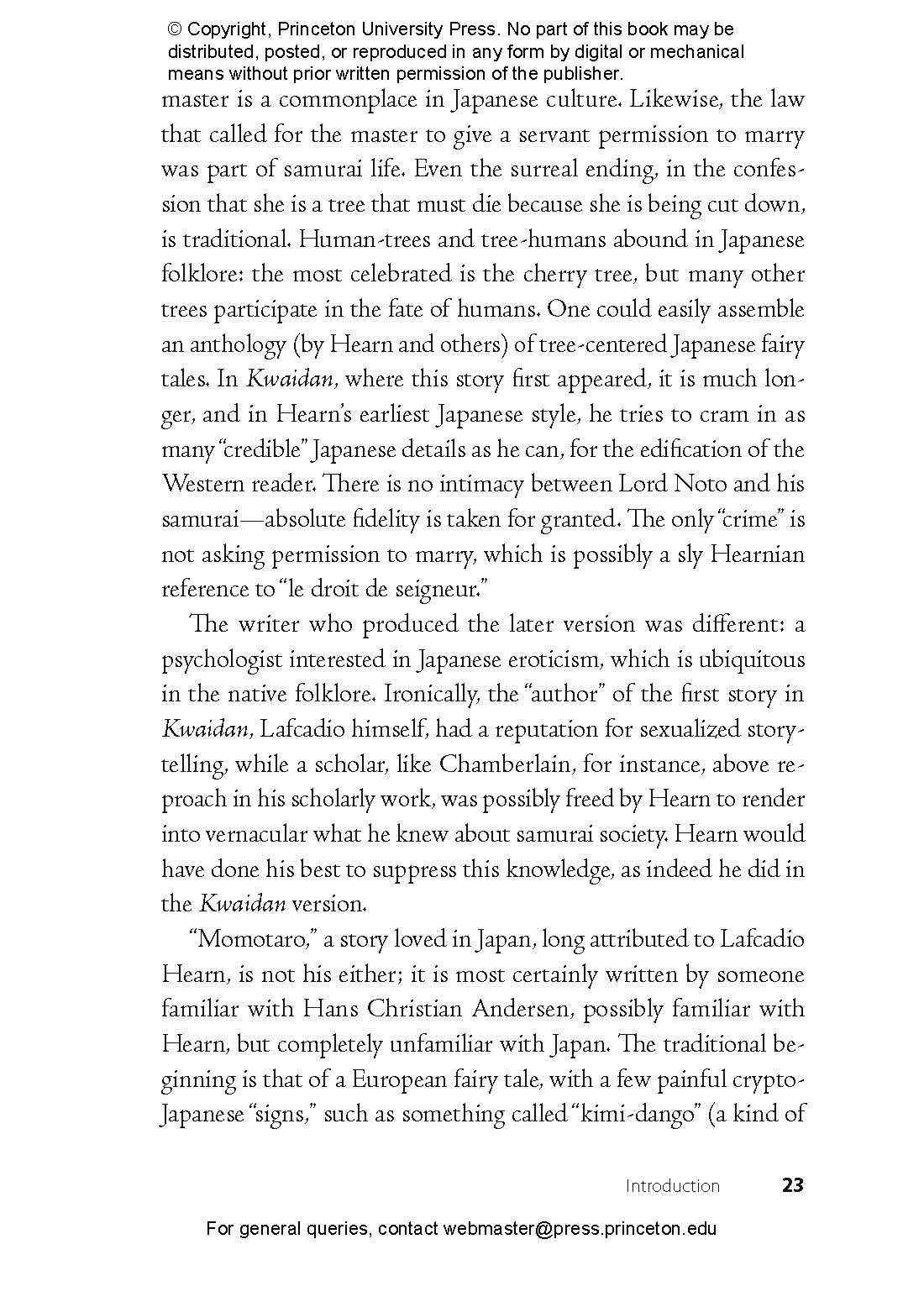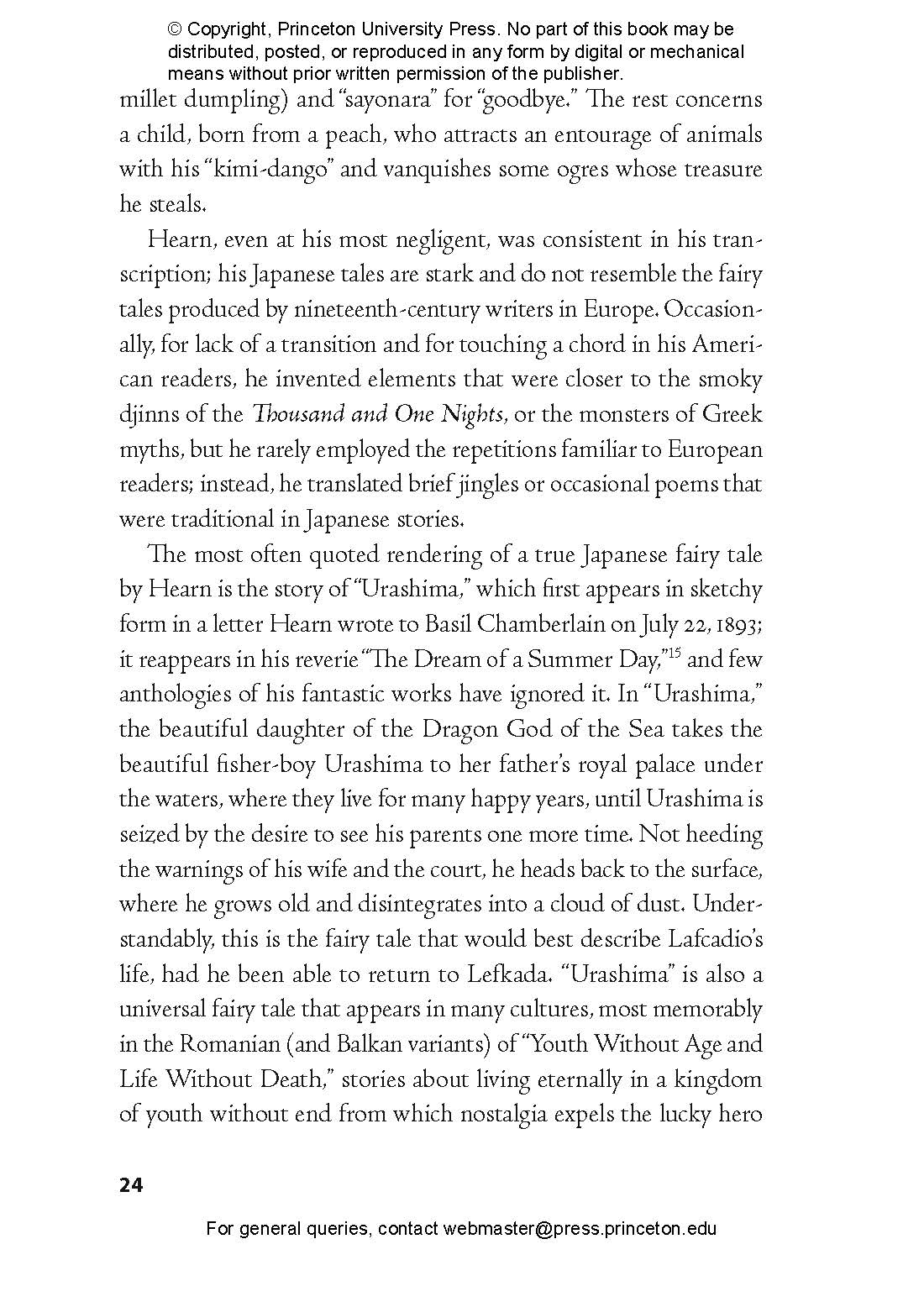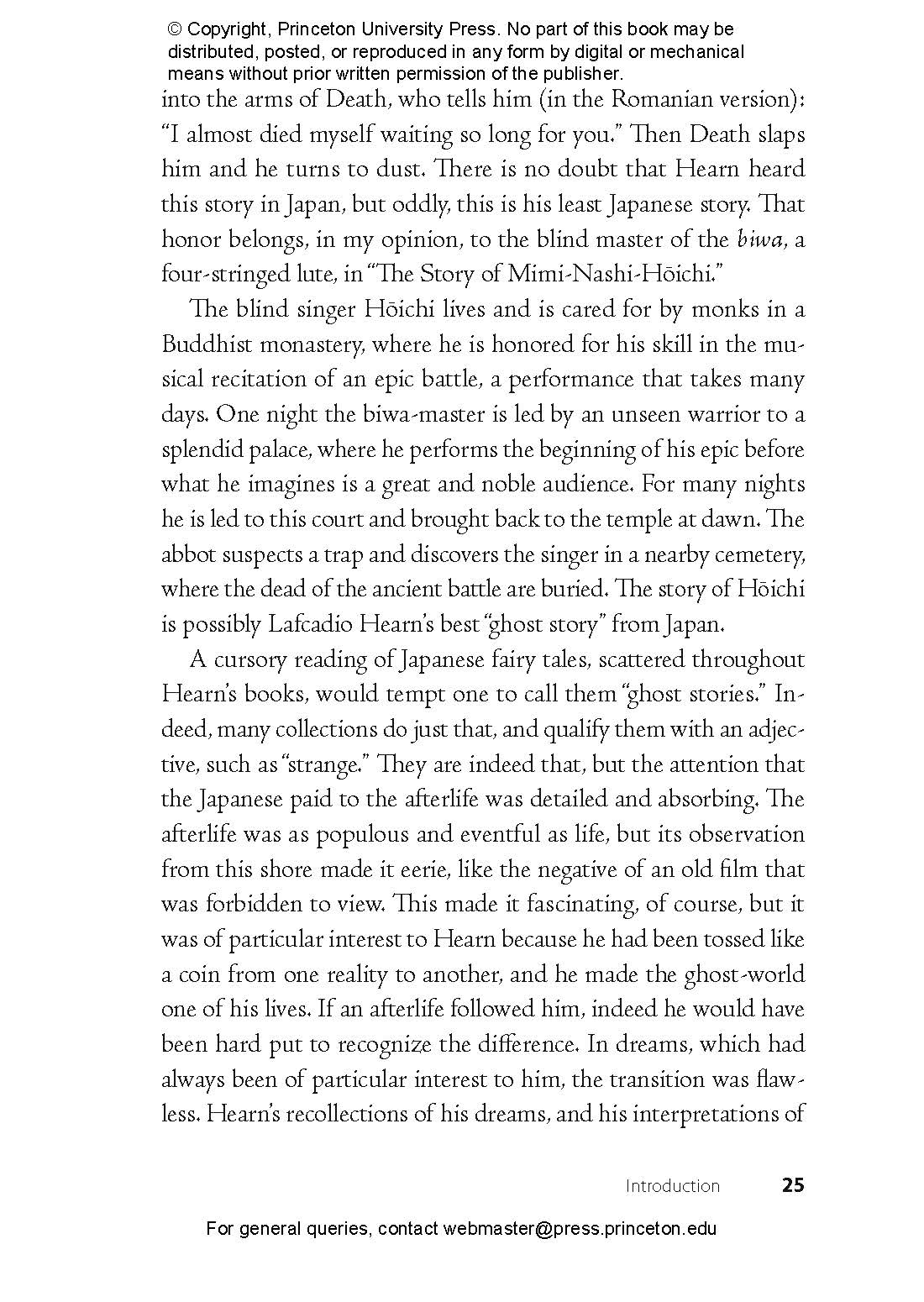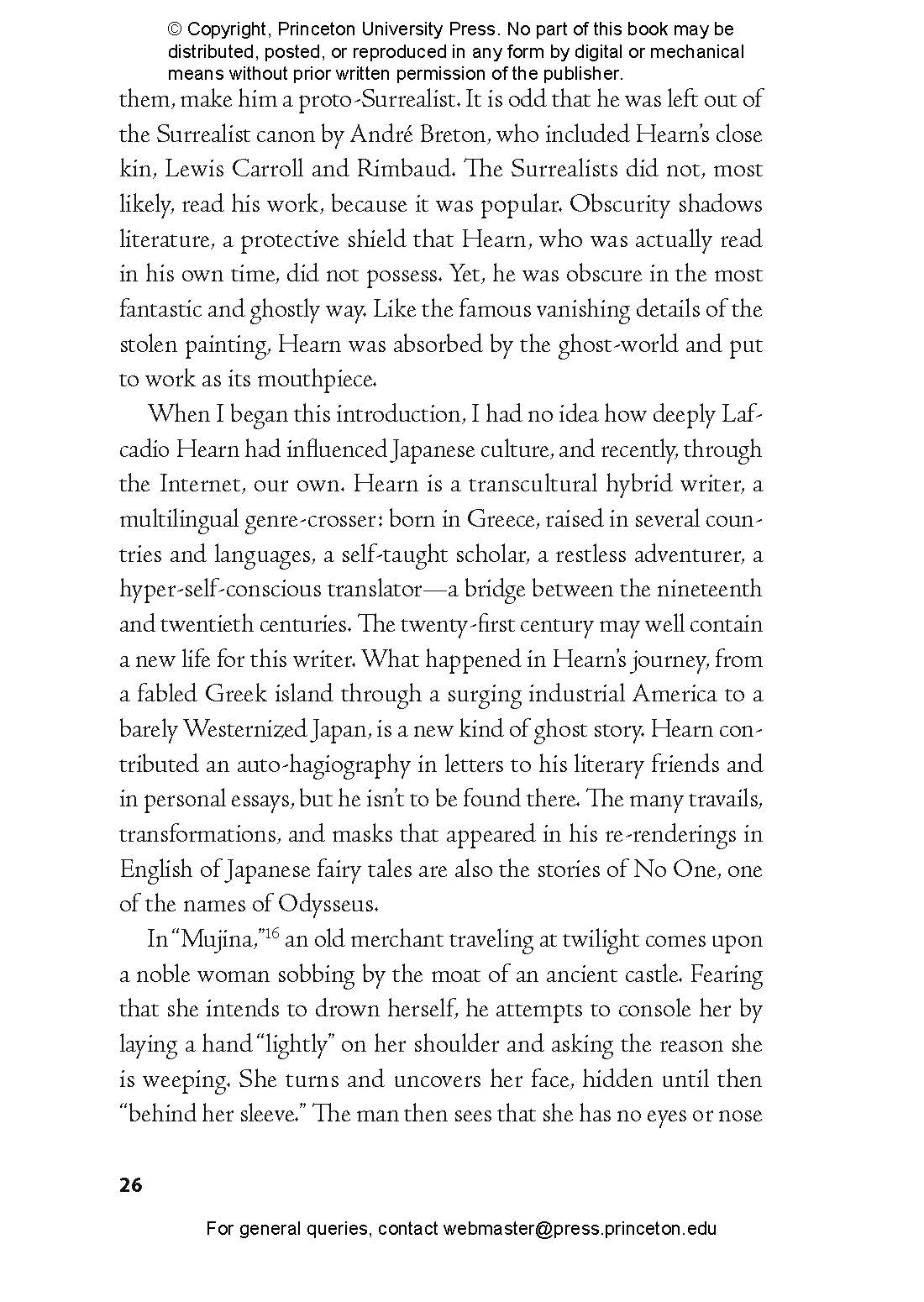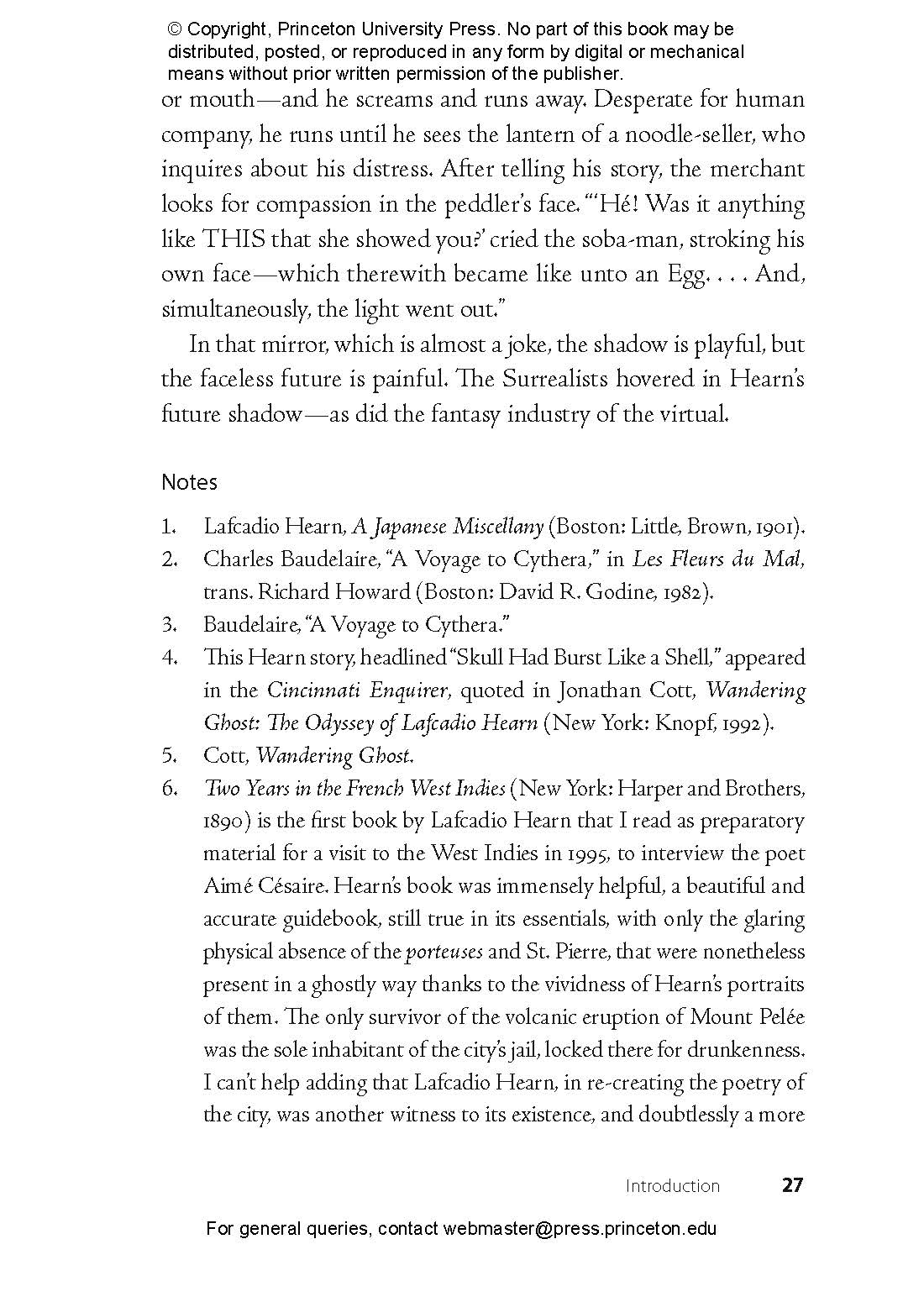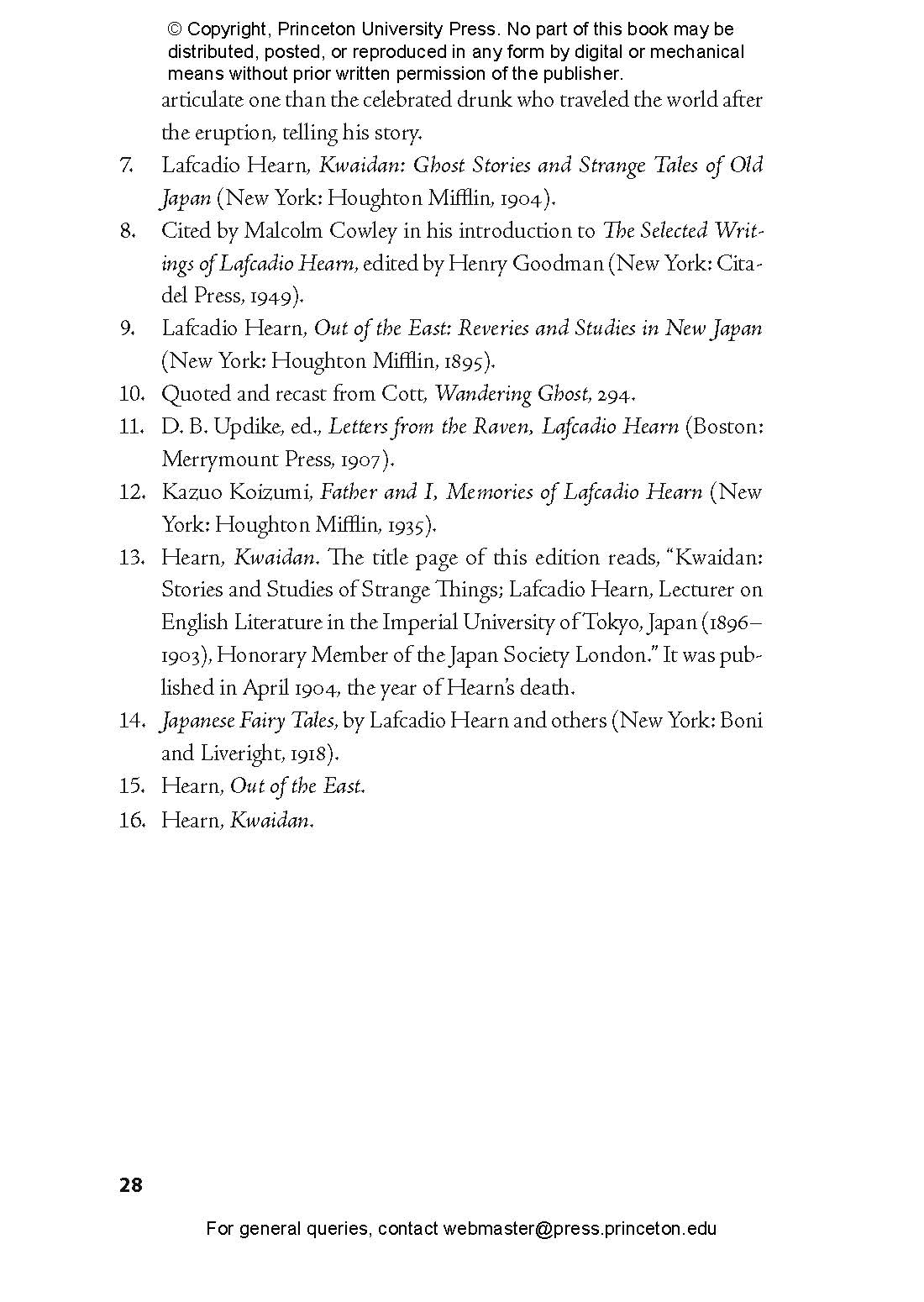Lafcadio Hearn (1850‚Äď1904) was one of the nineteenth century‚Äôs best-known writers, his name celebrated alongside those of Mark Twain and Robert Louis Stevenson. Born in Greece and raised in Ireland, Hearn was a true prodigy and world traveler. He worked as a reporter in Cincinnati, New Orleans, and the West Indies before heading to Japan in 1890 on a commission from ĪŠ≤ĻįýĪŤĪūįý‚Äôs. There, he married a Japanese woman from a samurai family, changed his name to Koizumi Yakumo, and became a Japanese subject. An avid collector of traditional Japanese tales, legends, and myths, Hearn taught literature and wrote his own tales for both Japanese and Western audiences. Japanese Tales of Lafcadio Hearn brings together twenty-eight of Hearn‚Äôs strangest and most entertaining stories in one elegant volume.
Hearn‚Äôs tales span a variety of genres. Many are fantastical ghost stories, such as ‚ÄúThe Corpse-Rider,‚ÄĚ in which a man foils the attempts of his former wife‚Äôs ghost to haunt him. Some are love stories in which the beloved is not what she appears to be: in ‚ÄúThe Story of Aoyagi,‚ÄĚ a young samurai narrowly escapes the wrath of his lord for marrying without permission, only to discover that his wife is the spirit of a willow tree. Throughout this collection, Hearn‚Äôs reverence for Japan shines through, and his stories provide insights into the country‚Äôs artistic and cultural heritage.
With an introduction by Andrei Codrescu discussing Hearn’s life and work, as well as a foreword by Jack Zipes, Japanese Tales of Lafcadio Hearn provides a unique window into one writer’s multicultural literary journey.
"[A]n attractive production . . . [with] a wonderfully witty and informative introduction by Mr. Codrescu."‚ÄĒSam Sacks, Wall Street Journal
"[A] weird‚ÄĒin a good way‚ÄĒcollection of stories, gathered from oral and written sources by Hearn."‚ÄĒChristopher Tayler, Harper's Magazine
"There is an excellent introduction by Codrescu . . . fascinating."‚ÄĒDamain Flanagan, Times Literary Supplement
"The pleasures of [Lafcadio Hearn‚Äôs] work are to be found in his delightfully bizarre hybrid renditions of Japanese folklore‚ÄĒparticularly of a genre called kaidan, or tales of the uncanny‚ÄĒold stories that he blended with elements of horror and French Romanticism, the best of which are collected in‚ĶJapanese Tales of Lafcadio Hearn¬≠."‚ÄĒChristopher Carroll, New York Review of Books
"[Lafcadio Hearn] devoted . . . his writing life to gathering Japanese folk tales and translating them into English. This new book contains the best of them."‚ÄĒSusan Bal√©e, The Hudson Review
"If readers want to see the range of Hearn‚Äôs interest in Japanese storytelling, then Codrescu‚Äôs edition amply demonstrates the range of Hearn‚Äôs interest in Japanese storytelling. There are, in addition to ghost stories, tales of lost loves, feudal loyalty and the contrast between appearance and reality."‚ÄĒJohn Butler, Asian Review of Books
"These tales beg for tellers. A great resource."‚ÄĒJo Radner, Storytelling Magazine
"[Japanese Tales of Lafcadio Hearn] is a uniquely transcultural kind of storytelling‚ÄĒsomething that feels familiar to Western audiences despite being wrapped in entirely different histories and cultural codes. . . . While the stories in the book are over a hundred years old, they have a lot to offer to twenty-first-century readers."‚ÄĒReid Bartholomew, World Literature Today
"The tales [in Japanese Tales of Lafcadio Hearn] are chronologically structured, intelligently edited, and paced in a way that is navigable to a seasoned scholar or a curious pleasure reader. The stories themselves are compelling and beautifully crafted, and Andrei Codrescu‚Äôs introduction is equally enthralling. . . . Fans of Hearn‚Äôs writing may find Japanese Tales of Lafcadio Hearn to be an ideal work. The collection contains more stories than any other compilation of his work."‚ÄĒJeremy Simpson, Western Folklore
"Japanese Tales of Lafcadio Hearn is recommended to anyone interested in the interaction between different cultures, particularly Japan and the West at the end of the nineteenth century, and to anyone interested in a good read of ‚Äėtales of the weird‚Äô from outside a Greco-Roman context."‚ÄĒJames H. Grayson, Folklore Journal
"Fronted by an authoritative introduction by Andrei Codrescu, these Japanese tales revive, once again, a writer, traveler, and translator whose presence at the turn of the nineteenth to the twentieth centuries enrich and engage still."‚ÄĒAlan Graubard, Leonardo
‚ÄúLafcadio Hearn‚Äôs writing is very important as literature and has long been critically recognized for its presentation of Japanese folklore and culture. With a clear, crisp foreword and an enticing introduction that contextualizes Hearn‚Äôs life, this book brings together some of his most significant and enjoyable works in a convenient format for a broad audience.‚ÄĚ‚ÄĒMichael Dylan Foster, author of The Book of YŇćkai
‚ÄúThe selection of stories in this collection is excellent. Hearn should be read by all lovers of Borges.‚ÄĚ‚ÄĒSteve Ridgely, author of Japanese Counterculture
‚ÄúThis book reacquaints contemporary readers with Lafcadio Hearn‚Äôs ‚ÄėJapanese‚Äô fairy tales. This is a worthwhile endeavor and may help Hearn gain the place in fairy-tale scholarship that he deserves.‚ÄĚ‚ÄĒMelek Ortabasi, author of The Undiscovered Country
